2020 was a whirlwind of a year. But it was an opportunity for self-reflection. Rather than the usual gear-focused reviews, I’m opting for more lighthearted ramblings. I’ll be writing about my personal journey into HiFi.
In early February, I lost my primary income streams. These were pseudo-passive streams – and the only reason I was able to review gear full-time all these years. Well, I’m no stranger to “the struggle.” In the following months, I quickly created a stock recommendation tool (that went viral), traded options, and made over 300% in a few months. All I can say is…”In Elon We Trust.”
I’ve since started building a couple of listening rooms and a YouTube recording studio. Running Audio Bacon requires dozens of hours a week – but generates less than $5 per day. So obviously, I’m not doing this for the money. So why am I doing this? That’s a great question. And one I’ll be answering here.
A Life with Music
My story is common to many Chinese immigrants in the late 1970s. My parents escaped the Vietnam War but their parents died on the way to the refugee camps. There was an opportunity to start a new life in San Francisco and so they took it. Within a few months of spending time at a temple that was sponsoring them, they moved to Los Angeles.
My parents were “tiger parents.” I’m the eldest of six and we all took a very prolific and “Chinese Farmer” approach to life. Expectedly, I was told my future will have an MD after my name. My head was always in the books – 6 am to 12 am. At the age of 12, I’ve built computers, hung out on BBS systems, and created my own web pages. I was browsing Yahoo on a green and black screen. In fact, that was the time my hacker buddy (whom I’m still friends with today) gave me the nickname “Bacon.” Not after the fatty deliciousness but Francis Bacon. He said I was very philosophical. Whatever the hell that meant. By the time I reached high school, I knew more about technology than my own peers and teachers.
Fast forward a few years. I worked my ass off and received a full scholarship for my undergraduate and graduate degrees in electrical and computer engineering. I even developed my own music player (years before Spotify), audio and video codec, and took a course in psychoacoustics (the professor was an audiophile, and I had no clue what that meant at the time).
In the end, my parents got five doctors and one audiophile – and were still disappointed. My dad actually disowned me for studying engineering. I shit you not.
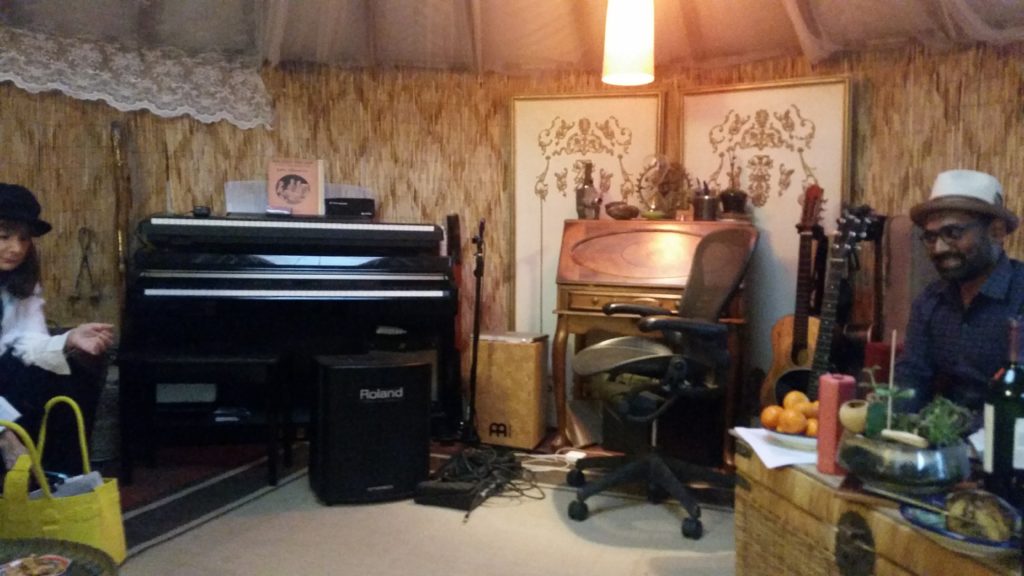
It was all a dream…
Not to mention, we lived in a rat and roach-infested, 700 square-foot apartment. My mother was making 75 cents an hour and worked 80+ hours a week. Gangs were prevalent. And I came home from school with black eyes and bruises. For years, we shared clothes and ate mostly sardines and rice. This is not a sob story, just perspective.
We lived below the poverty line – but we grew a thick skin as a result. TV was limited to an hour a day but we were allowed to listen to music as much as we’d like. My mother bought a Sony boom box (with MEGA BASS) from Downtown Los Angeles. It was one of those scratched up and dented display models, with spray paint on it – but it worked. Fortunately, I found more comfort and inspiration from my stereo than from Teenage Mutant Ninja Turtles. I was listening to music every day. I let my “tape rock until my tape popped.”
I continually tied life’s events with the music I listened to. I got my hustle mentality through Notorious B.I.G.’s Juicy and I fell in love to the music of Boyz II Men, Babyface, and The Tony Rich Project. Music was an outlet for the chaos. My sister and I would just record songs from the radio onto cassette tapes and replay them. In fact, I still have those tapes – and that old boom box (Many Chinese parents are hoarders, and mine were no exception).
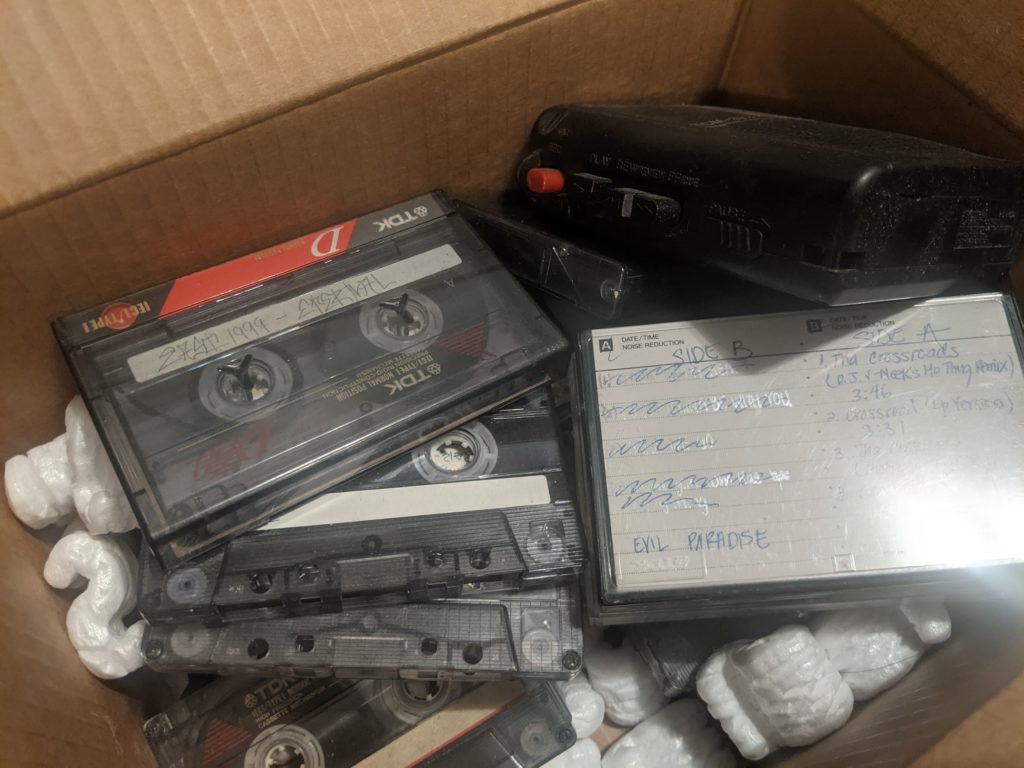
Although I primarily listened to hip hop and R&B…I was open to all genres of music. I started getting into alternative rock, metal, electronic, and even Latin. From an early age, I’ve rarely gone a day without listening to music. I even followed these underground groups that released exclusive tracks and unreleased tapes. The stereo was the first thing I would turn on, and the last thing that would turn off.
Appreciation of Sound Quality
It wasn’t until my mid-20s when I started seeking higher fidelity. I was a workaholic – pulling in 100 hours a week. As with growing up, the only thing that kept me going was music. And I had a pair of cheap headphones I was using for years. When I decided to spend $100 on a pair of headphones (instead of $20)…that’s when the rabbit hole opened. I realized…my enjoyment and appreciation of music were compounded by the improvement in sound quality. One of those “I’ve heard that song thousands of times…why does it sound different?” moments. It was important to me because the music was emotive and a persistent part of my life.
At this point, I should mention that I have a bit of an obsessive and systematic approach to topics I’m interested in. As an engineer, I’m predisposed to numbers and measurement devices. In fact, I have a penchant for optimizing, collecting, and analyzing data. I see a goal and I try my best to find a solution as efficiently and quickly as possible. My mind optimizes in absolutes and binary values.
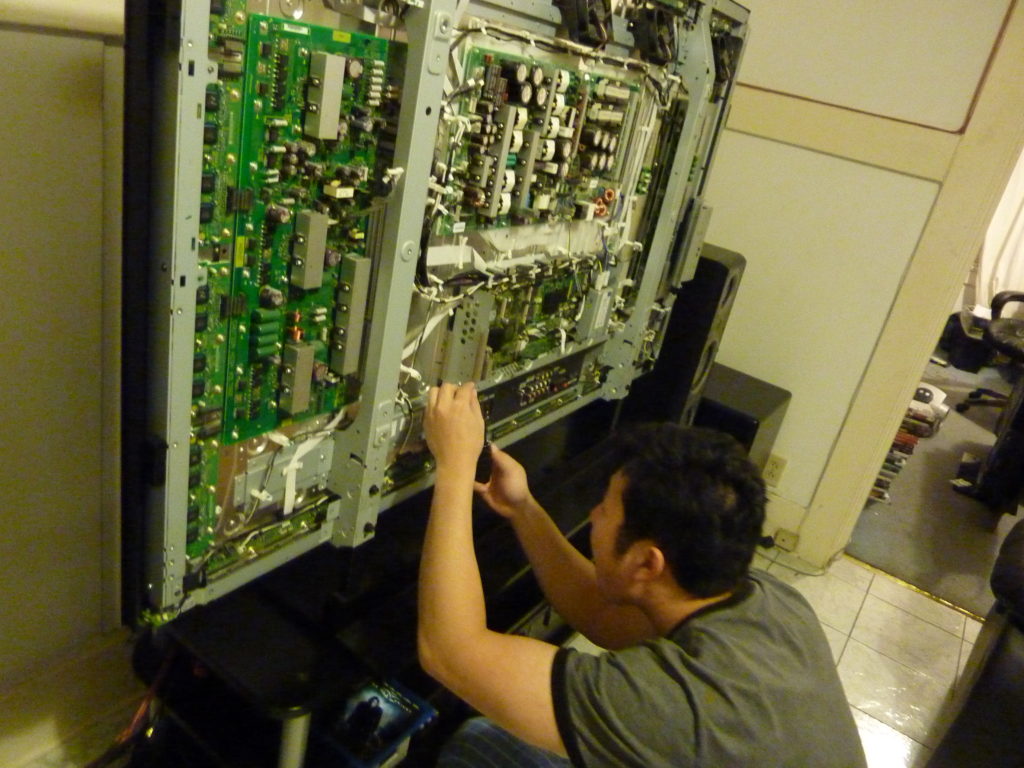
A few examples:
- I was obsessed with perfect picture quality so spent thousands of dollars on displays and calibration software and equipment (I had five Pioneer KUROs).
- I wanted to find the best burgers in town so ate at a different joint every week for a year.
- I embraced the online dating scene so created a spreadsheet and attempted to automate the process. I ended up going over 400 dates and have plenty of interesting stories (for another day).
- I wanted to be more “worldly” so I dipped my toes in the hospitality business and hosted a few thousand guests on Airbnb. I took notes on what mattered most to guests and it turns out a simple whiteboard with a “Welcome XXXX” was responsible for most of my 5-star ratings.
- I have a huge fascination for the arts so I decided to go to ephemeral Black Rock City (Burning Man).
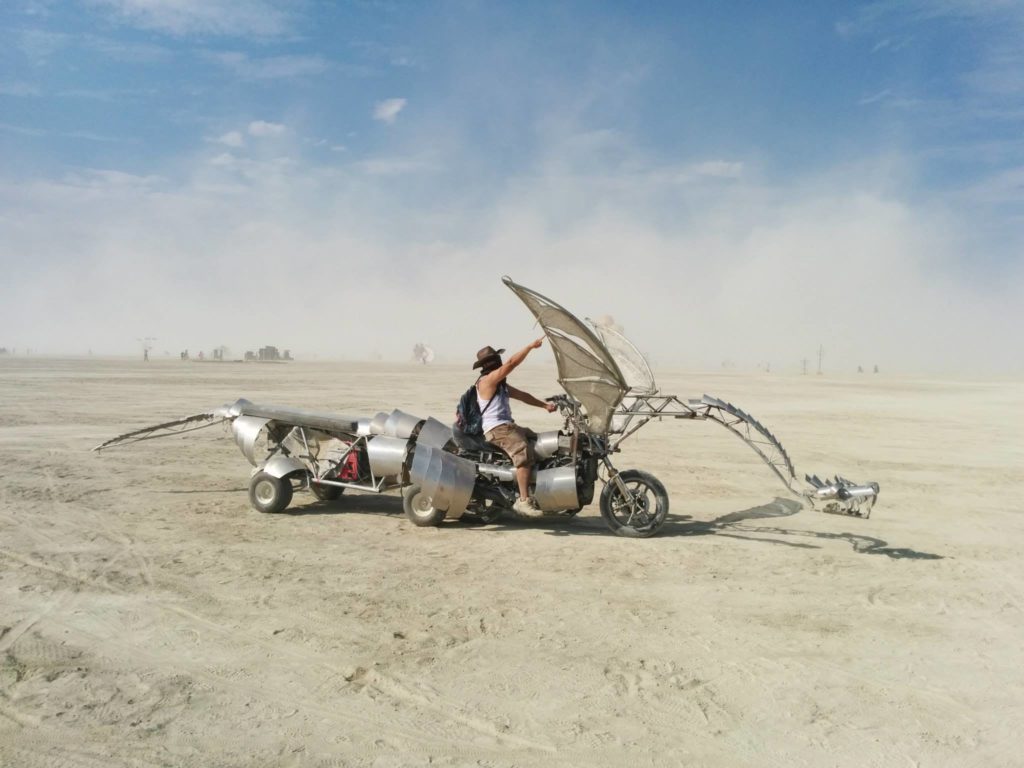
Being a Robot
For the most part, this “robotic” mindset enabled me to find the best TV, best burger, a beautiful wife, and granted me exposure to so many cultures. I felt like there was always a scientific and practical way to get the answers you want. So when it came to audio gear. I figured I could take the same approach: Just perform some room correction, EQ it, look for measurements, and read reviews. I quickly realized…the solution wasn’t as obvious.
“Which speaker sounds best?” For many reasons, and because this is an inherently subjective pursuit, scopes and math won’t be sufficient. Now a good engineer uses the right tools for the right job. The best engineers question, observes and examines the job then decides on the necessary tools. Unfortunately, being an audiophile required something that wasn’t easy to obtain. And that’s experience. It’s impossible to determine what you like – if you don’t know which flavors are out there.
Unfortunately, there aren’t any shortcuts here. There was only one solution: You have to listen to as much gear as possible while keeping an open mind. In contrast, TV calibration and color science are more absolute. A digital value of the color red should be exactly red when measured with a calibrated spectrophotometer.
The Transformation
Up until this point, I lived in the world of absolutes. Every function had an input and an expected output. I felt my body had wires with electricity instead of veins with blood flowing through them. Everything was binary…zeros, and ones. I’ve designed CPUs, written encryption algorithms, and even audio/video codecs. There was always a way to figure out a problem by plotting out a few points.
Apparently, our brains are more complex than what the current state of science could explain. Which opens up an opportunity for exploration. It’s a neverending process. As for me…I embrace volatility, innovation, and change. Mostly because life is unpredictable. There are no absolutes and we always have to learn to adapt and grow. Our personalities are based on the choices we make in life and the environment that surrounds us. I could no longer be robotic in my ways…and I loved it.
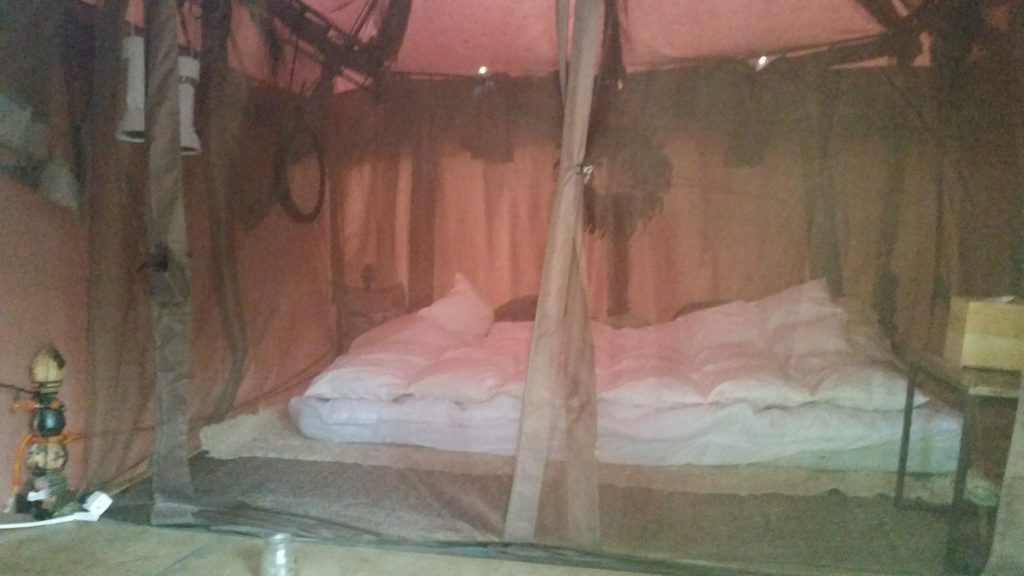
The Audiophile’s Perspective
I believe the most trustworthy audiophiles are the ones that make it a point to listen to as much “stuff” as possible. This includes going to concerts, listening, and experimenting with gear, going to shows, watching movies, and just paying more attention to the sounds around us. Depending on what one has heard, that determines the stories and opinions they will tell you on YouTube. And depending on whether you align with their experiences…you’d agree or disagree. In short, this hobby of enhancing one’s enjoyment of music is inherently subjective. Looking at measurements won’t tell you whether you’re going to be enthralled by what you’re listening to. But they could be useful in identifying design issues.
The best audiophiles are also those who listen critically yet are still able to allow the music to move them. A sound engineer works more technically and tries their best to implement the vision of the artist. The artist or musician is listening to how well their stories are being expressed. They’re “closer to the sound” and focus more on techniques and the overall artistic delivery. The audiophile tries to maximize the final recording for their own enjoyment.
Btw, have you heard of compound butter?
Point of Reference
In this hobby, it’s more important to narrow our search to ears we agree with. The best reviewer (for you) is the one that carries the same philosophy. For example, if you and I attended an unamplified performance, we could both agree that this “sounds natural.” So if we were placed in front of a pair of speakers, a “natural” sound be the same type of sound shouldn’t it? Yet, we have hundreds of components claiming to reproduce a “natural and faithful sound” but will sound very different. It’s going to be subjective any way we twist it…yet it shouldn’t be.
I think many audiophiles develop an instinct where they could tell whether a sound is “right” for them or not. But those that don’t listen to many live performances, talk to people, or interact with the world – will have a different perspective. Their point of reference could be whatever they have at home, whether that be a karaoke machine, laptop, American Idol on TV, or whatever. But if they’re enjoying what they’re hearing, and they believe that it sounds better than what they get from the real world, there’s nothing wrong with that. But it’d be best to follow commentary from those with similar experiences.
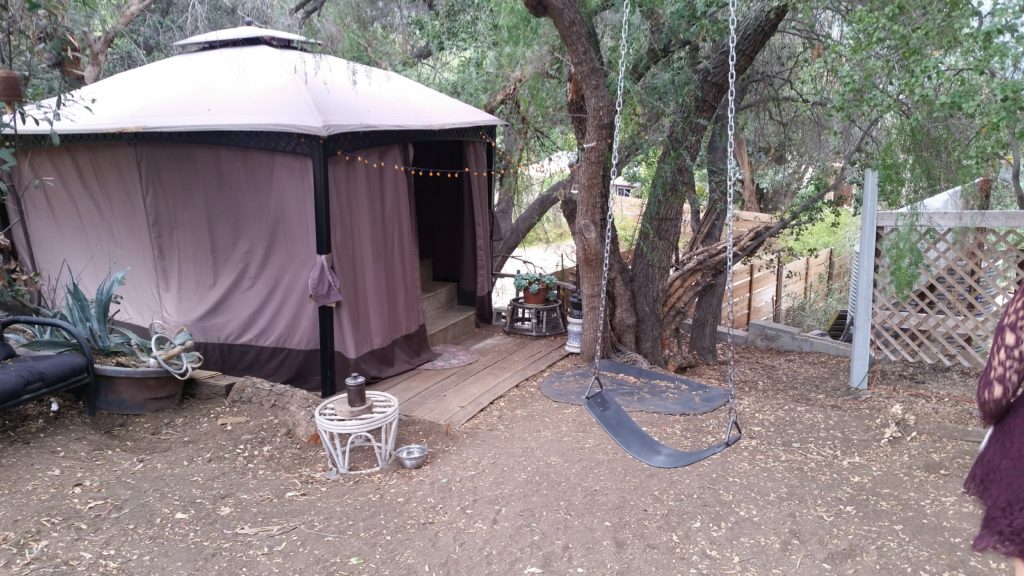
The Artist’s Perspective
Sometimes in my reviews, you’ll hear me say “It has more artistic intent.” This is a general personal assessment – and is based on a holistic picture of what a piece of equipment actually does (across multiple genres). My focus is primarily on tonality.
Unless I’m able to sit these artists and sound engineers in front of my HiFi system, I wouldn’t know if it were reproduced to their liking. In reality, everyone in the room could still have their own opinions on what sounds better. But the only opinion that matters is the audiophile.
For example, there’s a local chef that refuses to alter their burger in any way, even at the request of their customers. I like the burger, but not a fan of blue cheese. So what’s more important…the chef’s ego or how I feel when I bite into a juicy burger? If I’m paying $18 for this burger, it better be to my liking. It doesn’t matter what the chef (artist) intended it to taste like.
Since the source of our enjoyment is from the artists themselves, it still made sense to me to explore a bit further. So in true “rabbit hole fashion,” I signed up for a “Sound Architect Retreat” and took some guitar lessons a few years ago. Keep in mind, I’m very technical minded and don’t have a single creative bone in my body. Instead, I’ve grown to appreciate the art created by others.
Guitar Lessons
Merely being a musician or playing an instrument doesn’t make you a more credible audiophile. From a neophytes’ perspective, as I’m playing various chords, I’m focused on the way I want to play a song. My mind is more occupied with the technique and being able to mentally build the melody, rhythm, and harmony. Obviously, for a seasoned musician, the skill is more second nature…but I feel that the enjoyment of playing music…is different from critically listening to it. Audiophiles listen critically so they could pick out the attributes they enjoy so that they could continue their search for the perfect match in their stereo. There’s no “noise” in how the instrument is played…just how it sounds.
So I asked a friend of mine who has performed and have played flute and piano for about 30 years.
I realize what I hear while performing is very different from what the audience hears. The reverb, echo, plus delays, plus volume…it’s more of an “instinct.” And if it’s a piano… the vibration of the strings. Also, listening to a concerto is a different experience from actually playing that piece. Some concert halls help reproduce the experience better than others. But it’s a different exercise altogether when listening for enjoyment. When playing the flute, the vibration on my lips is felt and heard more texturally whereas I’m just listening to the note from afar when being in the audience.
If I were to put myself in your shoes, when it comes to audio quality, the one that listens to the performance does have more of a say than the musician. We play with emotions and muscle memory…not ears…
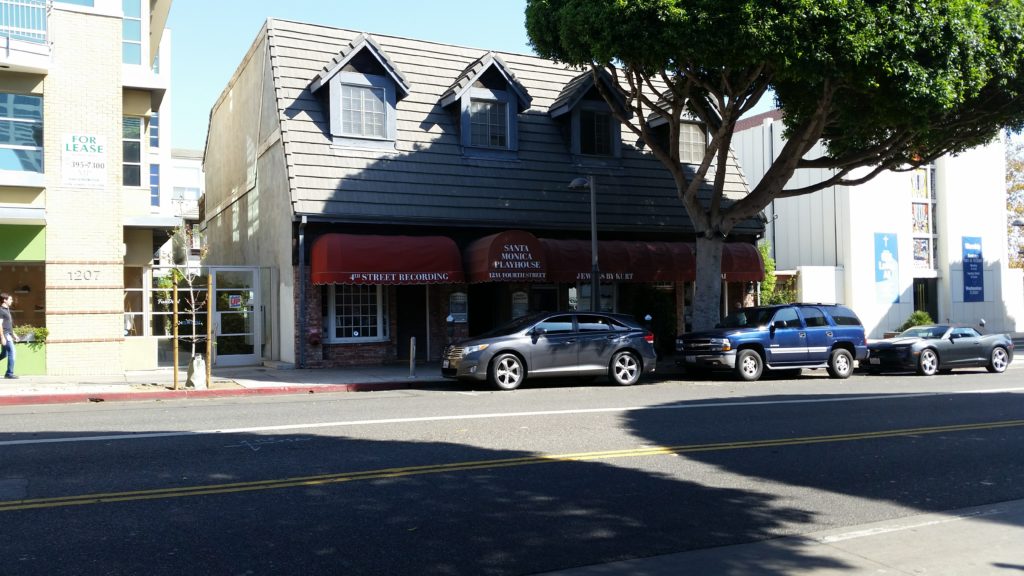
The Sound Architect Retreat
So this 4-day retreat involves going from songwriting, a creativity session, a recording session, and a live show. I wanted to get a better idea of what goes on behind the scenes of music creation and figured this “crash course” would be invaluable. I learn through first-hand experiences, not textbooks or theory.
As for the retreat, my host was a talented local artist, Sophie Ilys.
Songwriting Circle
The songwriting circle consisted of a handful of LA songwriters who come and workshop their original songs to get feedback from the group. And there’s no better place to do this than a yurt in Topanga Canyon. Everyone brought a song they’ve written or are working on and had their peers critique.
Obviously, I was the black sheep. I didn’t have a song and got weird looks because I announced myself as an audiophile. Some were intrigued – but didn’t even know audiophiles existed. The artists will play on their own instruments (typically a ukulele or guitar) and everyone takes turns expressing how they feel about it. Aside from the subjective, they touch on music theory and a few more technical suggestions. Many of these artists were focused on the melody and lyrics and didn’t have instruments. Their plan was to sell the songs, not play them. Others had a more personal investment and learned both.
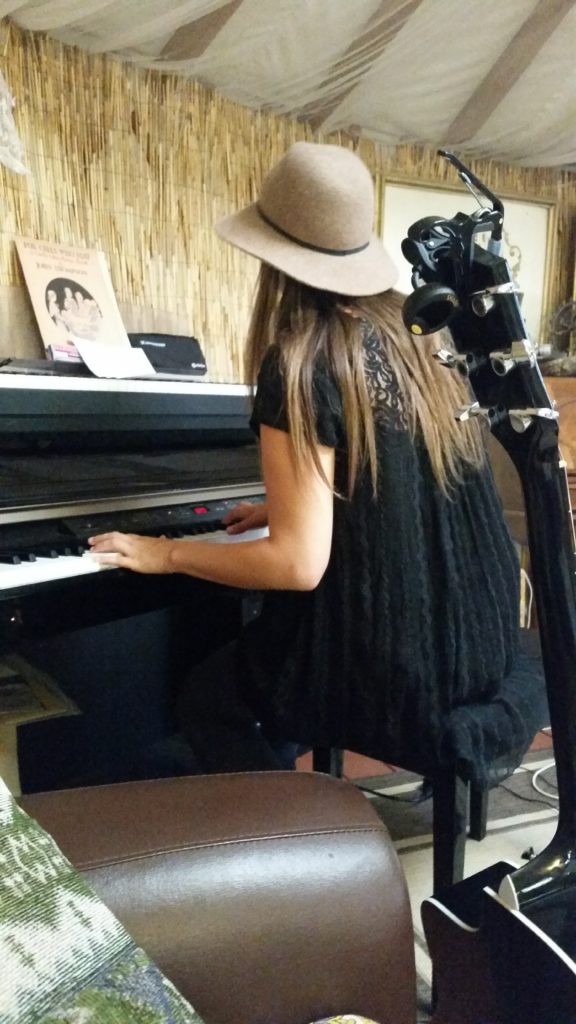
Creativity Session
This was a one-on-one session where Sophie went over the different approaches to expressing a song. I brought a poem I wrote 17 years ago (it’s the only one I kept). Amazingly, she was able to “convert” my poem into a song and started experimenting with the drum machine. What made this so beautiful was that her voice was unamplified. She had this lightweight Adele-esque voice that remained wholesome yet sweet throughout. I was paying careful attention because I wanted to know just how much of this was preserved in the final recording.
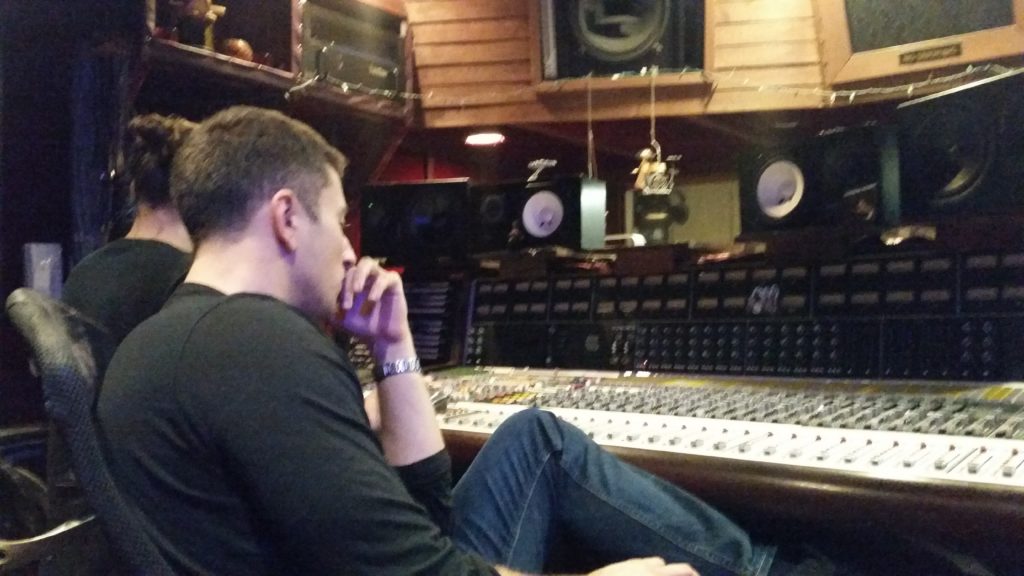
Recording Session
For the recording portion, we headed off to 4th Street Recording in Santa Monica, CA. The Beach Boys’ Kokomo and Fiona Apple’s Shadowboxer was recorded here. Other artists include Incubus, Shelby Lynne, Muse, Nelly Furtado, and Rob Zombie. You could check out their clients here.
This was an actual recording session for Sophie’s upcoming EP so it was pretty exciting. Fortunately, I also had access to a few sound engineers if I had any questions regarding the mastering process or equipment. No gold-plated connectors or silver cabling here. Although I did see quite a few fancy microphones being used (their models escape me at the moment). And of course the infamous Yamaha NS-10s.
The process was more involved than you’d think. The number of microphones and where they were placed were obviously crucial. I think they had at least five microphones just at the piano. Experimenting with different locations and heights to get the “right sound.” The metronome preserved pace and structure. At the mixing panel, certain speakers were used to isolate the lows, mids, and highs for evaluation. The engineers were intentional and were adjusting the music in various technical and creative ways. Sophie would come in and request that her voice sounds more “antique” or the piano sound warmer.
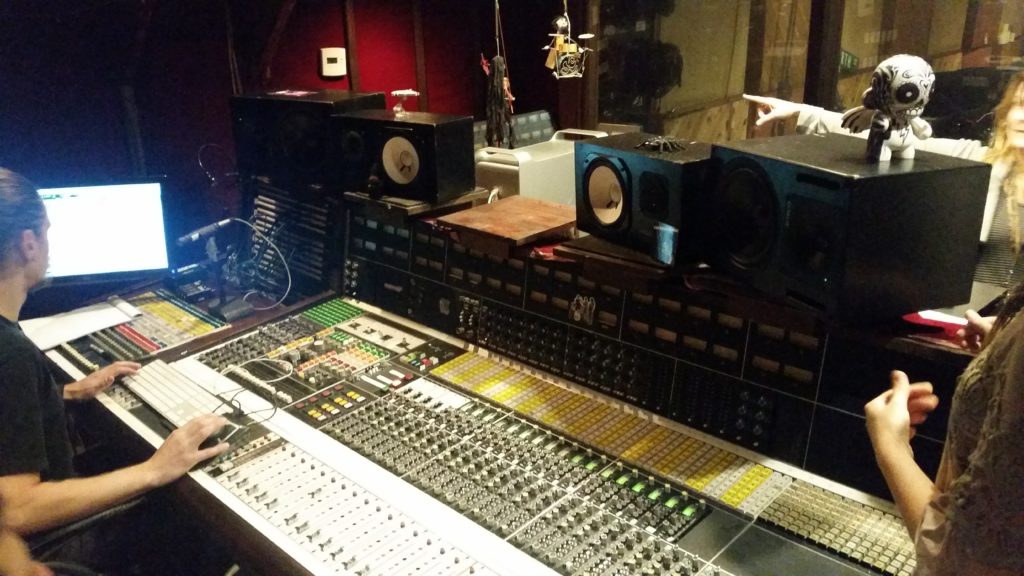
Sound Quality
My attention was on fidelity. And to be honest, those Yahama NS-10s (and the other speakers) did not sound great. But the engineers were listening for specific cues and levels. It was obvious they were accustomed to this equipment and knew how to make the proper adjustments to ensure the sound wasn’t problematic. “Neutral” was somewhat of a moving target depending on what gear was used and who was using it.
The engineer rolls his eyes and turns to me…”So you’re an audiophile…how do you think this sounds?” I was frank and said it sounded like typical consumer gear. “Exactly. We master for the masses. Most people and artists listen to this on their cheap earbuds or in their car. We just have to make sure it sounds good enough while expressing what the artist wants.” There’s enjoyment in the process but it has to be objective as well.
So in the end, what I heard in the live recording area while Sophie was performing and the mastered playback at the mixer…sounded very different. So many variables get changed simultaneously…but that’s a part of the art! The only thing we audiophiles have to work with is the final product.
I feel the bottom line is…modern microphones are sophisticated enough to record much more than what can be heard in some of these studios. The producers and artists themselves don’t even realize how much information is in that digital file. But they won’t concern themselves with that. That’s not their job. More importantly, those extra details may be inconsequential – and could actually take away from the music. Much like 4K Ultra HD pornos, you really don’t need to see everything.
Audiophiles are just taking these recording and shaping them with gear for our own enjoyment. Some prefer treble presence and air over bass and midrange richness, some prefer a meatier sound at the expense of resolution, and some just prioritize tone about all else. As of today, technology doesn’t allow us to have it all – which is why this hobby exists. Also, as you could extrapolate from this, we’re all at the mercy of the mastering quality of the recordings.
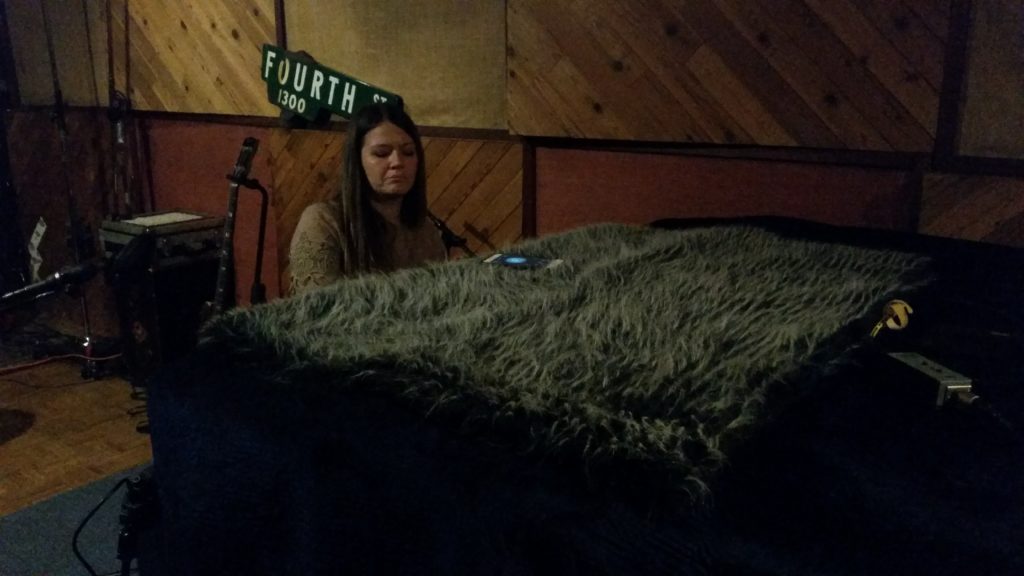
Should recordings studios have audiophile-grade gear?
My initial answer was “yes” because if the engineers could hear the layers of the music with better timing and “essence”…they could probably elevate what they could do with the inputs from all the microphones. The problem is that…new gear will introduce a new reference level for those that will have to mix and master it. There are audiophiles that look for recordings from specific engineers and studios…and if you drastically change the point of reference, that might require different tweaks and perhaps new equipment.
Admittedly, this is a bit extreme. I feel like if a recording sounded great on sub-par monitors, they’ll just sound better on the same gear. But I feel like the more resolving the engineers hear the recording, the more they have to work with to make for a better experience at the consumer end. Fortunately, more and more studios are testing out cables, power conditioners, and upgrading their speakers. Guess we’ll see where this goes.
Live Show
For the finale, we headed off to Hotel Cafe. If you didn’t know, Hotel Cafe used to be a coffee shop but became the spot for intimate acoustic performances. These songwriters include John Mayer, Adele, Damien Rice, Sara Bareilles, Katy Perry, Ingrid Michaelson, Priscilla Ahn, and Kiesza. The performer that night was singer/songwriter Connor Pledger. He had an incredible voice and we all had such a great time. Although the performance was amplified, we sat close and it reminded me of what I heard in the recording space the other day. Something that wasn’t heard through those Yahama speakers. And that was the organic essence of the performer. From an audiophile, this meant resolution, tone, coherence, dexterity, texture, and granularly propulsive sound.
And although this can’t be realized through some of these studio monitors (or many high-end speakers for that matter)…the microphone captured that information in ultra-high resolution. The artist and engineers care more about you appreciating their music and less about how you enjoy it. My goal as an audiophile is to take what was created and tweak my listening room to the point where it recreates this said essence.
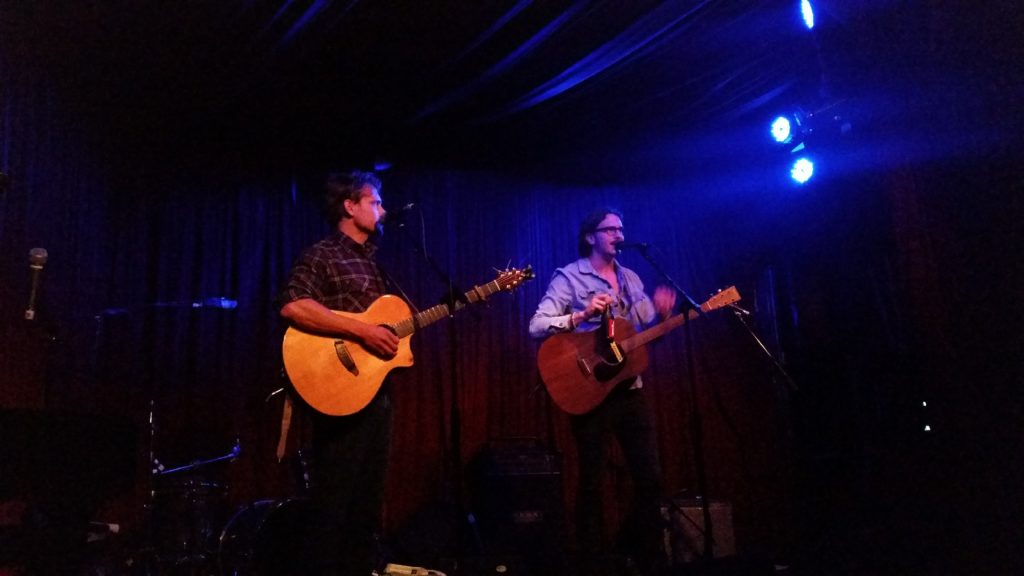
The Naysayers & Trolls
The thing I love about this space is that it’s constantly evolving and there’s always more to learn. The hobby ends when you want it to. If everything could be explained with science, then there’s nothing left to learn. Creating the perfect sound system is not only a scientific endeavor – but an intentional one.
I’m cultivated from a place of skepticism and cynicism. Society encourages us to follow certain constructs. School shapes us to be robots. I don’t think either encourages one to question everything – including our established beliefs and knowledge. The trolls in this space have a more fixed mindset while others have a growth mindset. I believe it boils down to personality, and we’re not responsible for changing them, nor do we have to get along with them. These are the people who tend to tiptoe through life just to arrive safely at death.
Isn’t science enough?
Our brain throws out a lot of information – especially if it’s not something we care about. Much like how you start to realize many people drove the same car as you after you purchased it. For example, science tells us that the human eye can’t see more than 60 Hz. So people didn’t see the point of PC monitors with higher refresh rates (120 Hz, 240 Hz). Yet many gamers were consistently able to distinguish which ones were 60 Hz and which ones were 120 Hz. I personally could tell the difference and I’m not even a gamer. Some “experts” are now starting to think humans could see over 100 Hz.
Another story. I actually have a close friend who strongly disagrees with most of these audiophile (and videophile) endeavors. He keeps telling me I’m being conned. This guy references white papers, requested blind tests, and dismisses anything he didn’t learn from textbooks. He legitimately thinks it’s only in my head. Heck, he even tried to send me earbuds he got from an airline, posing as an audio company and claiming to have the “latest hybrid transducers.” I gave them one listen and threw them in the trash. Only to find out months later he was the one who sent them. Well, soon after that, his wife revealed he’s partially color blind and tone-deaf…and doesn’t even listen to music. So, just be cognizant of who your trolls are.
Like with many things in life, it’s about how you spend your limited energy and what you pay attention to. And realize that the only real currency in life is time. And what defines us as human beings – is what we choose to do with it.
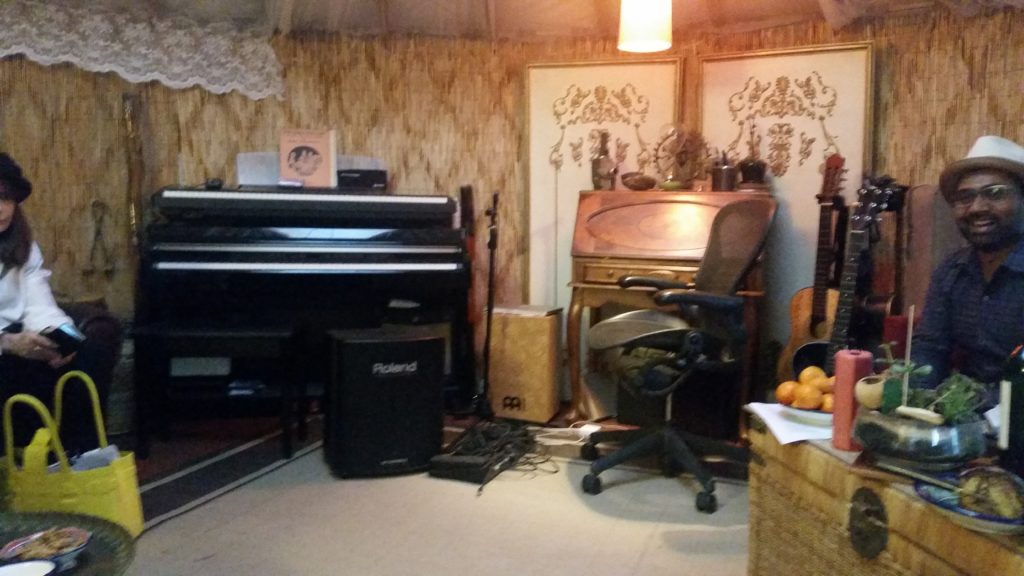
Closing Thoughts
The future will be in digital music, so that will be my focus. I’ll be investing in two listening rooms and a YouTube recording studio. The plan is: One of the listening rooms will be focused on affordable gear while the other room will be a more cost-no-object approach. I still have a lot of work to do and more equipment to purchase but it should be interesting.
Like many, I enjoyed music without all the expensive HiFi gear. The only reason for my ardent pursuit of sound quality is because it compounds what I live for. I don’t just listen to music…I surround myself with it every day. It’s the storytelling accompanied by emotion. A sound system that promotes goosebumps is what keeps audiophiles coming back for more. It’s a drug that gives us insight into the talent, the struggle, passion, and the love of expressionism. And to be able to hear it reproduced in a more connective, dynamic, and truthful manner, elevates my quality of life.
Higher fidelity isn’t just emotionally rewarding, it enriches my entire state of mind. Everyone appreciates and is moved by art differently. The experiences you’ve had, and the ones you seek…will ultimately determine what you enjoy. Music acts as an index for our memories. Much like how it works at a library or in a MySQL database. Pursue this hobby in a way that works for you. But most importantly, don’t forget to be human.
I’ll leave you with a few pro tips.
Audiophile Boil Down
- Listen to as much gear as possible. Preferably at the same time. Definitely easier said than done but without doing this…your reference point isn’t as strong.
- Keep an open mind. What you have in your room and everything you connect to the sound of your system – will change the sound. This includes the material of your sofa, the type of outlets you have, and the RFI that surrounds you. Even your choice of CPU, hard drives, and RAM in your playback server will change the sound.
- Cables could be transformative. Those who say cables won’t matter much are inexperienced. Analog and digital audio cables could sound different (better or worse) even if they measure the same. This also applies to some headphones and speakers. Remember, measurements are a good guide in determining issues with a piece of gear, but won’t tell you how it sounds (for now).
- Always wear protection. I can’t count the times I had to buy earplugs at some of these concerts. Although it’s more important to protect your ears, some of these plugs take too much of the music away. I use these.
- Expensive doesn’t always mean better. I’ve heard thousands of products, and more often than not, some of the cheaper options sound truer than those 10 times its price. Although there are some attributes of sound that could only be obtained with higher-quality materials…which would be more expensive. That said, there are opportunistic companies out there that will sell you snake oil. Truth is a lot of these companies have found ways to manipulate the sound in various ways. Whether through engineering, creative, accidental, or nefarious ways. Depending on whether a consumer could find that sound somewhere else…they might be willing to pay for it.
- Earwax is good. Don’t clean all your earwax with Q-tips. The wax helps you with keeping them healthy.
- Visit your local dealers. I realize many of them are dying out but my journey in 2-channel started with spending time at high-end audio dealers. Each store will have its own perspective and that will add to your mental data bank. It’ll also provide you an idea of their reference point when describing gear. Obviously, a great time to listen to music as well.
- Attend live events. Make it a point to attend live concerts. Listen not just to the music, but the crowd, the pyrotechnics. Spark a conversation with a stranger. Take a flight to New Orleans and stroll down Frenchmen St. Wherever you are, listen for the essence that is missing from most sound systems. Only a few systems in the world could reproduce it.
I working with a few engineers in developing up a new platform for audiophiles that will hopefully help connect people with the right gear. Sign up for the newsletter if you haven’t done so already and I’ll send an invite to the beta.

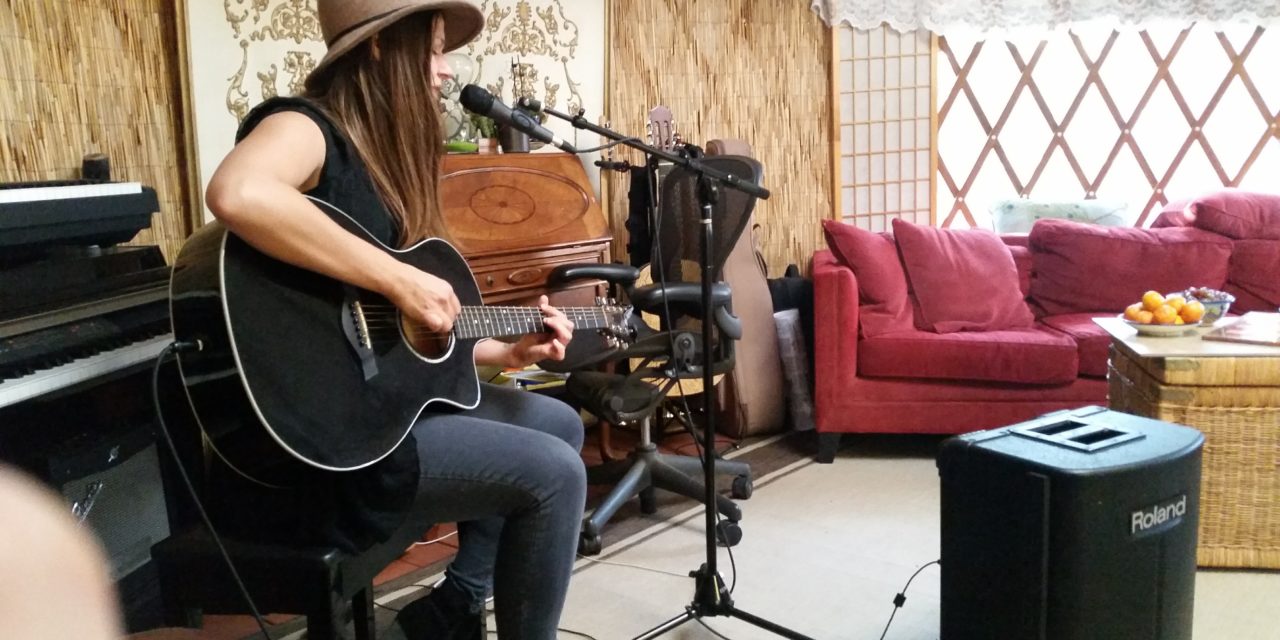
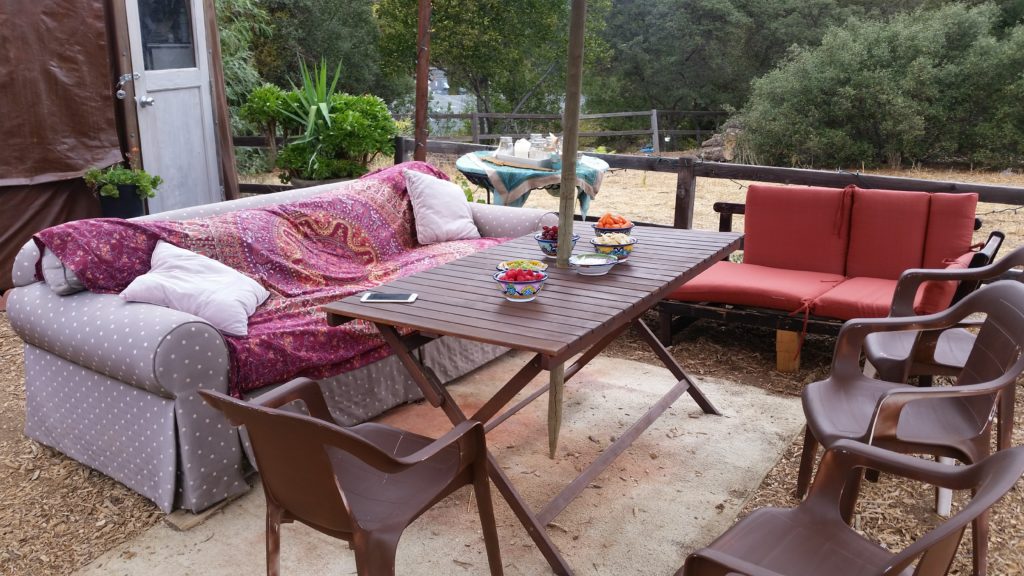
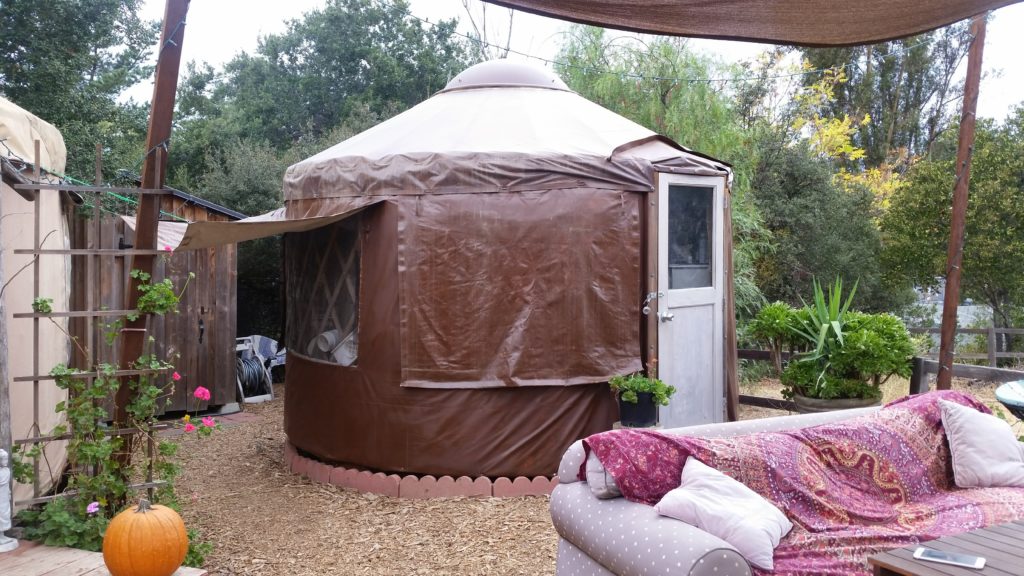
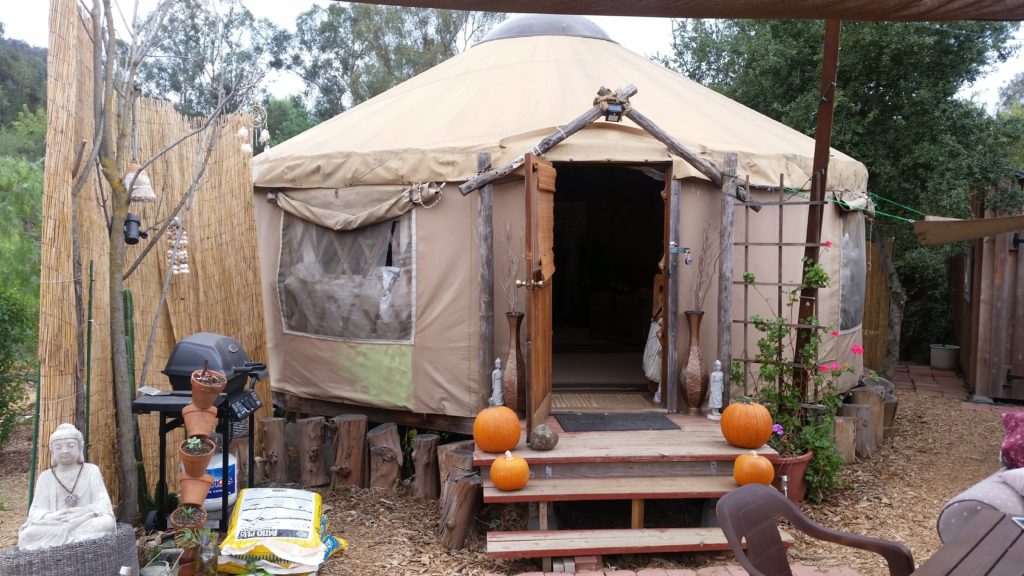
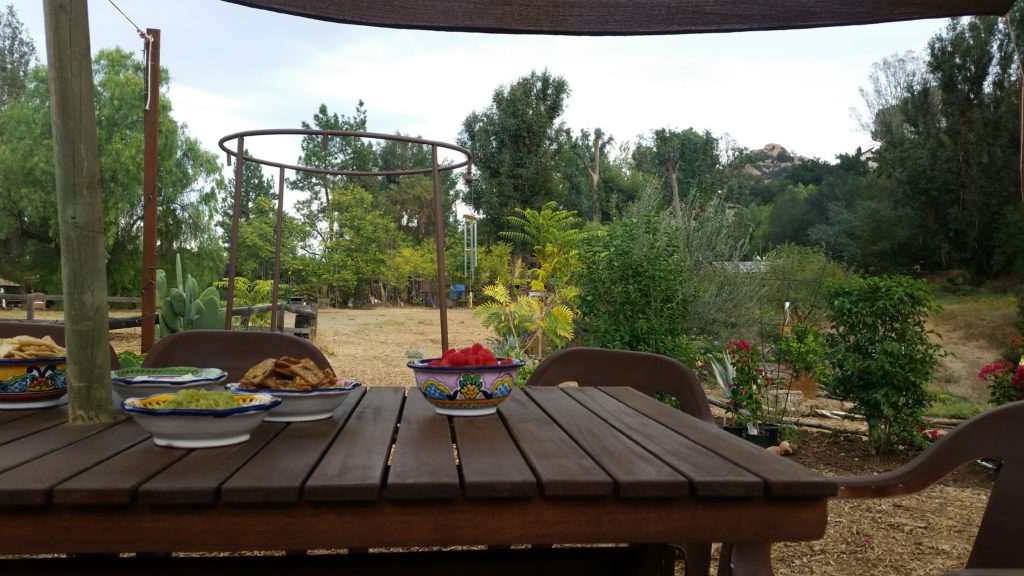
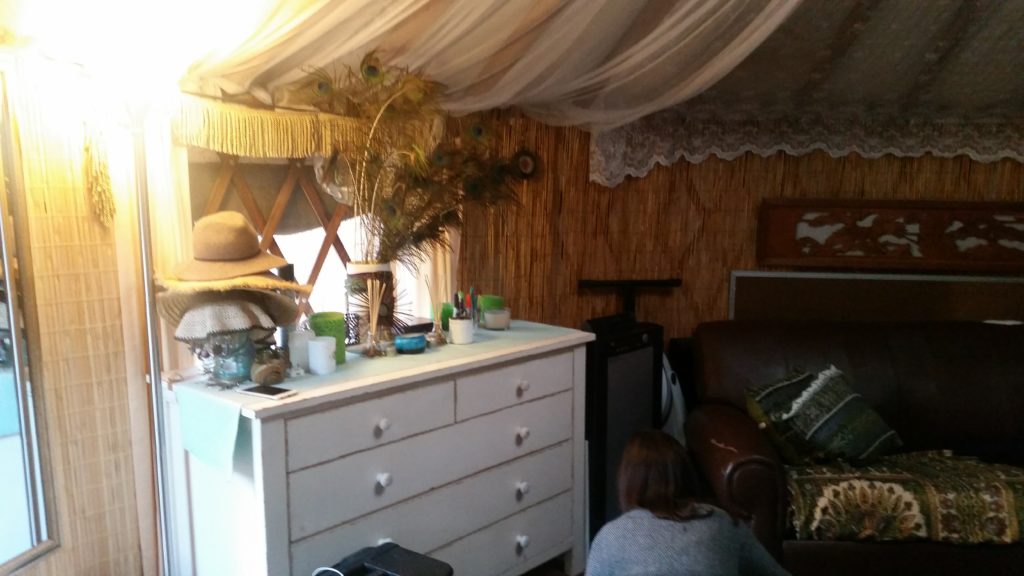
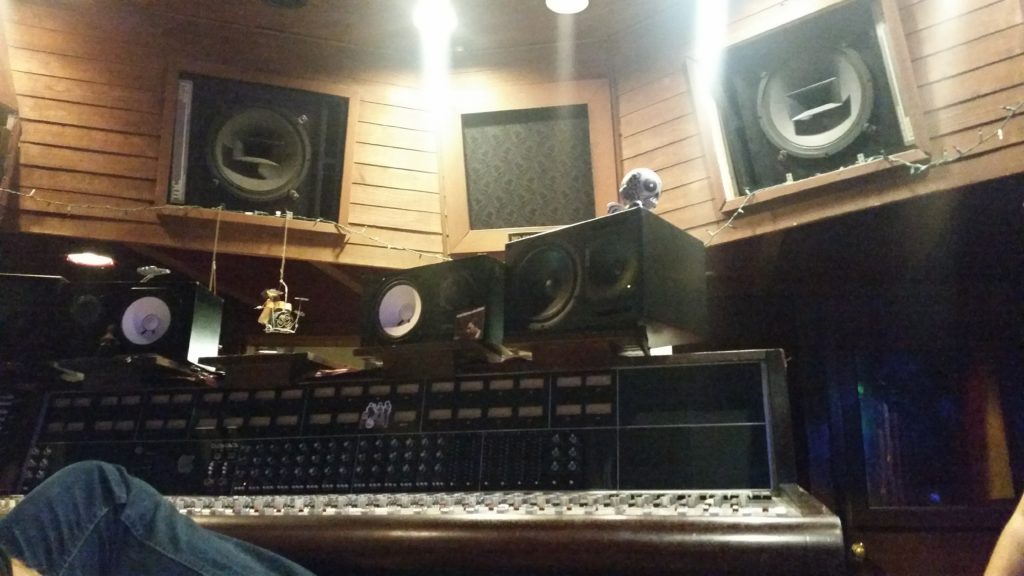
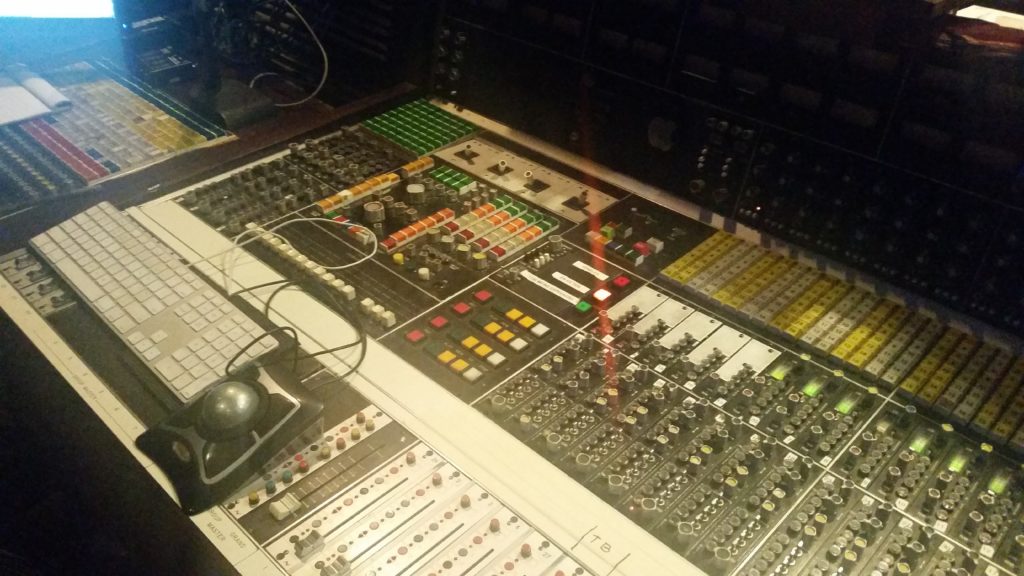
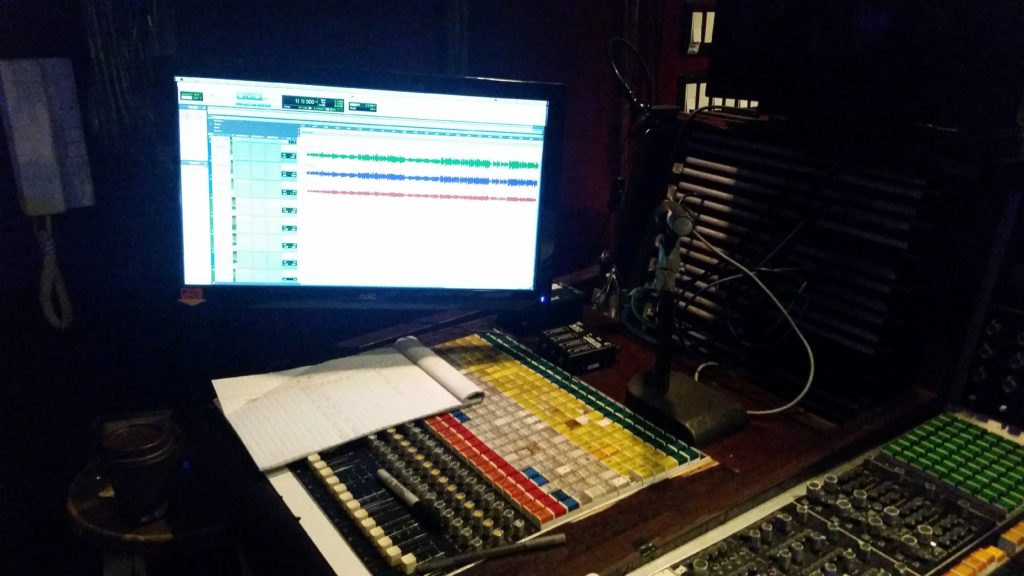
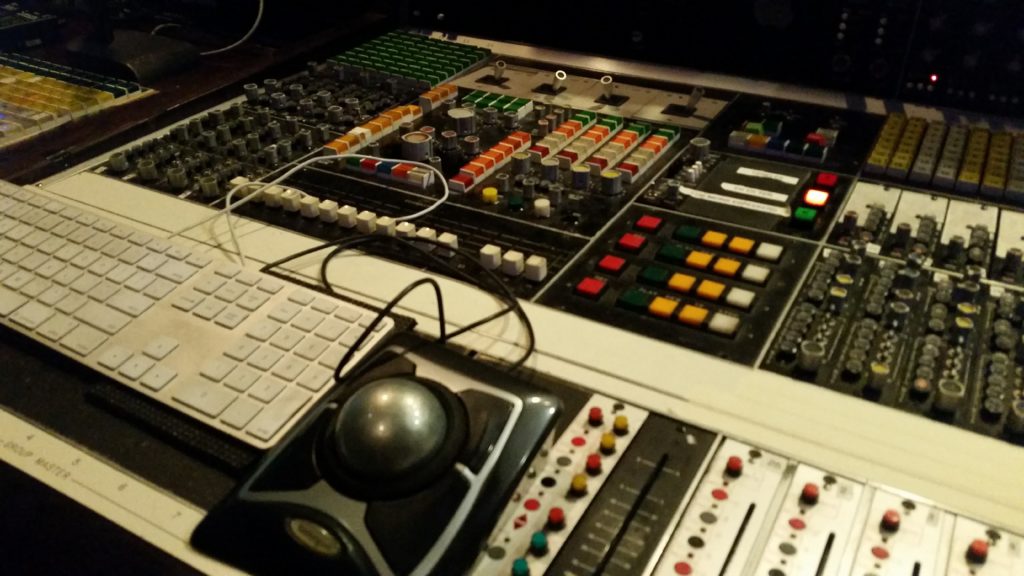
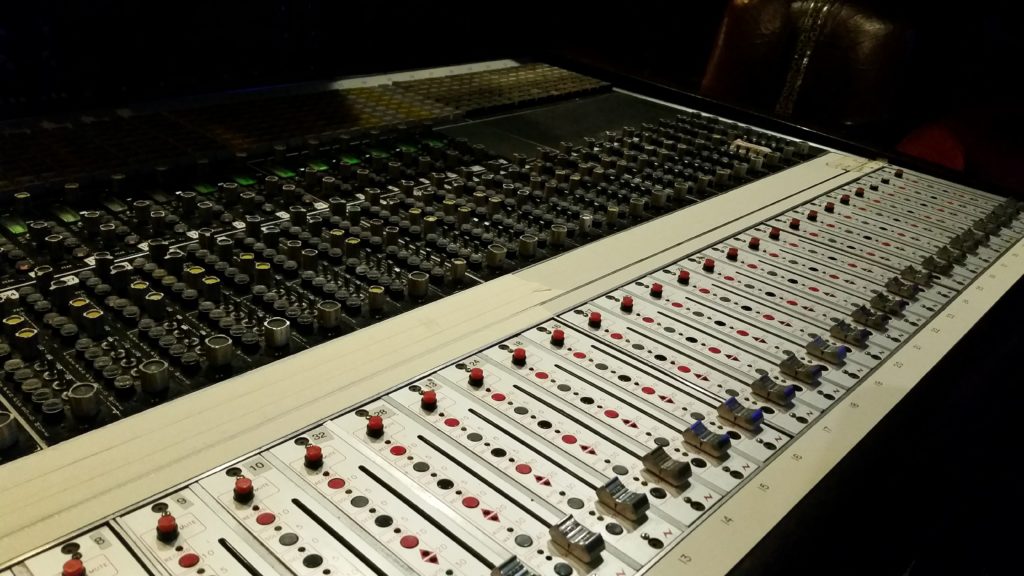
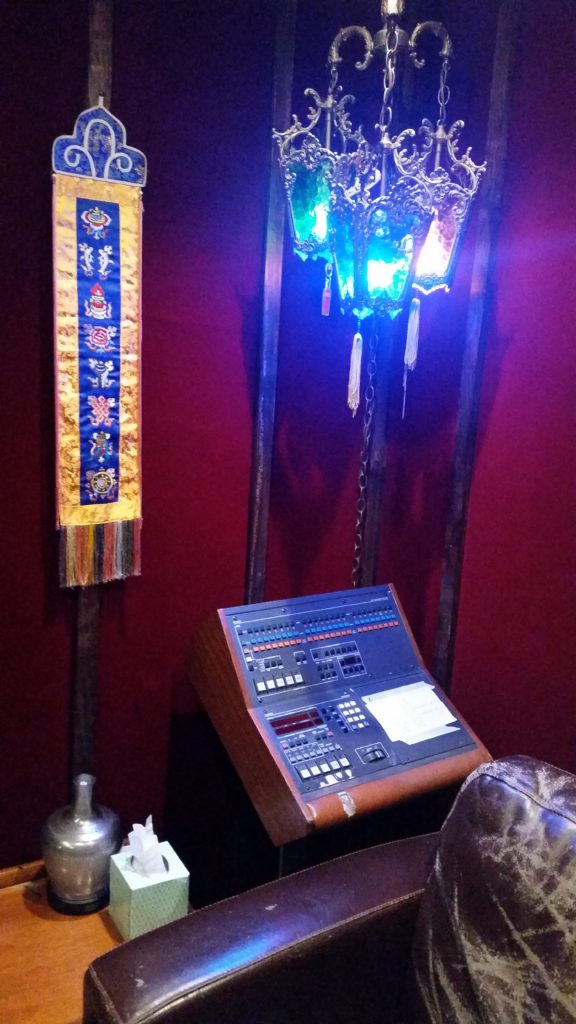
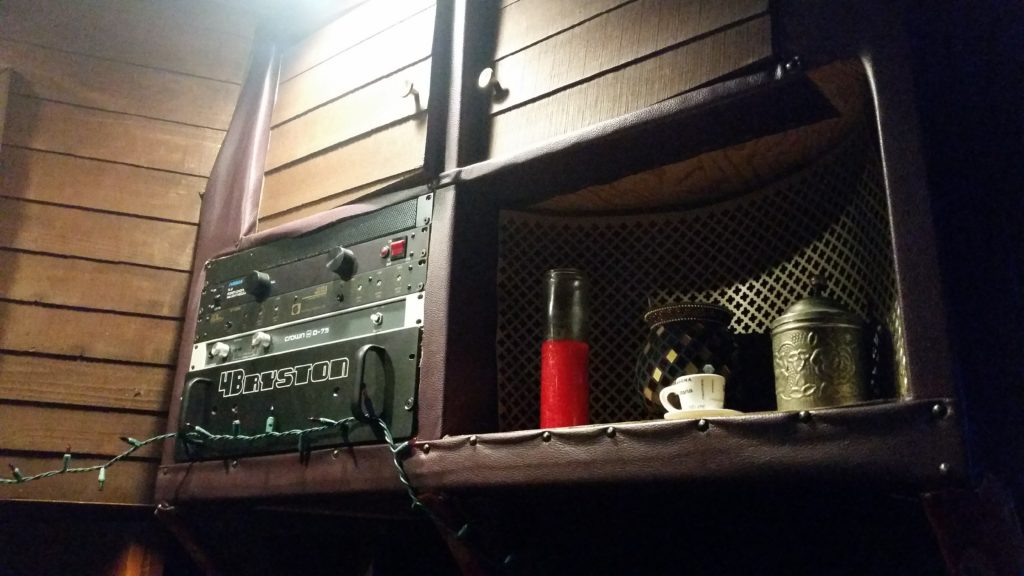
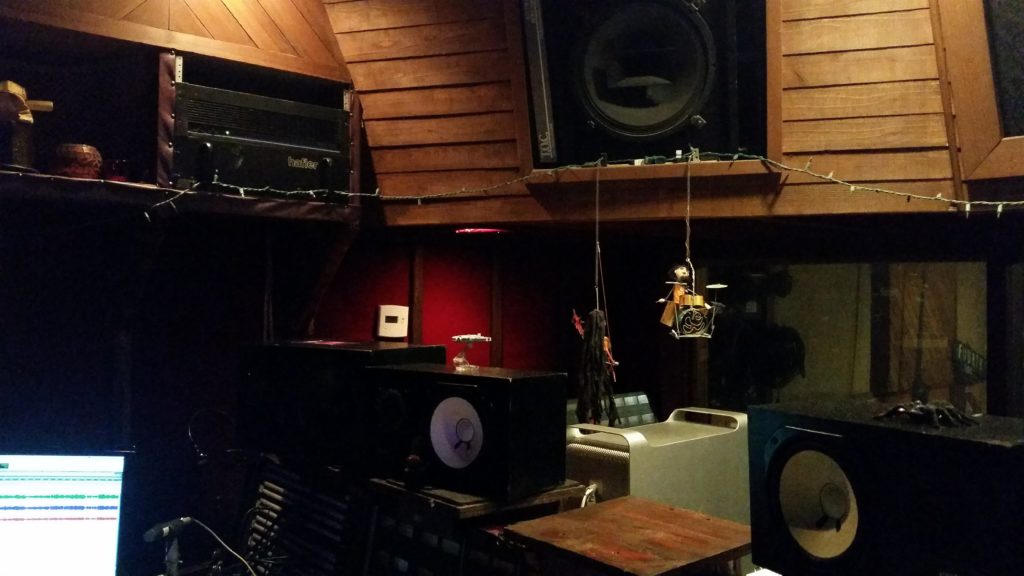
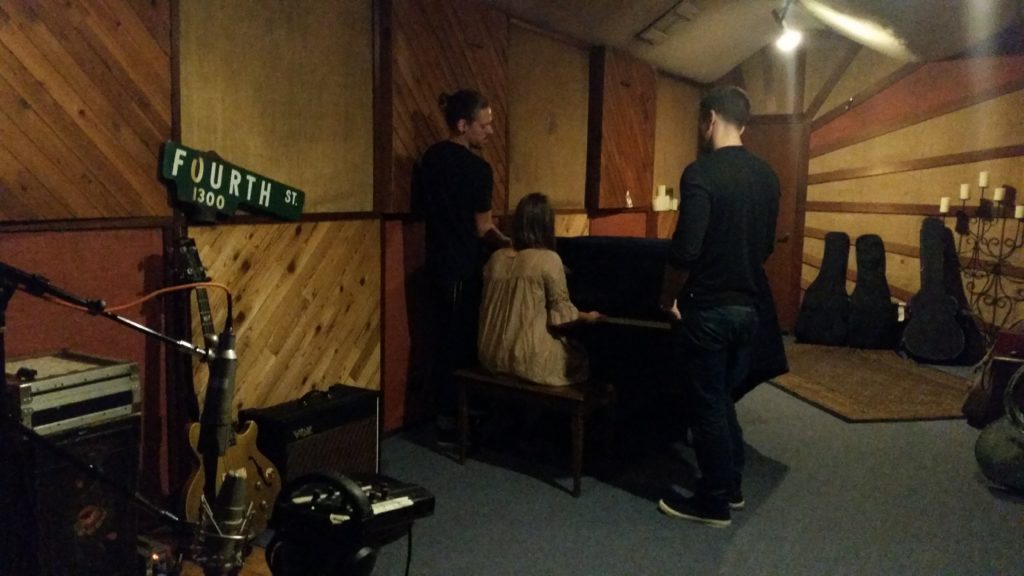
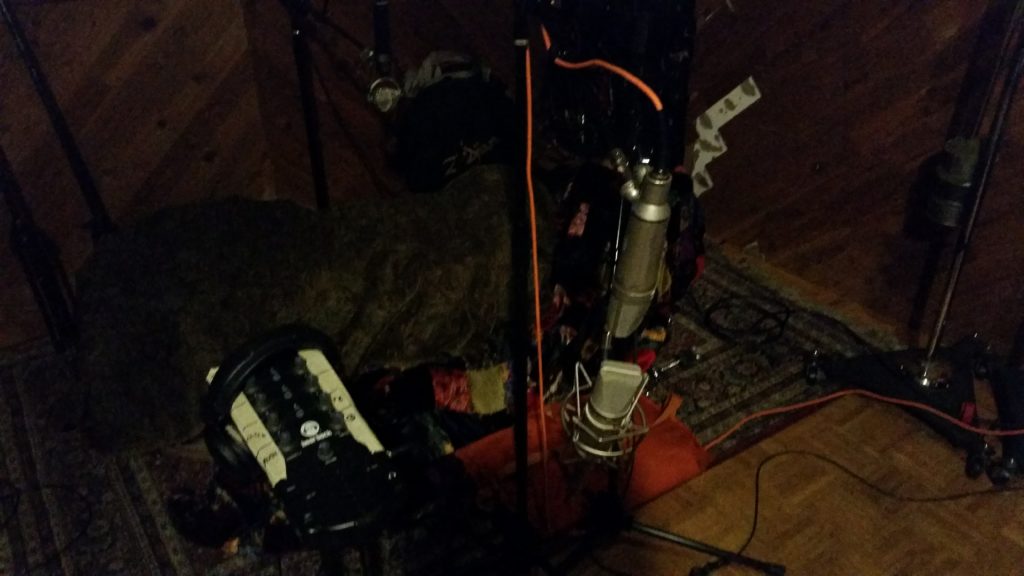
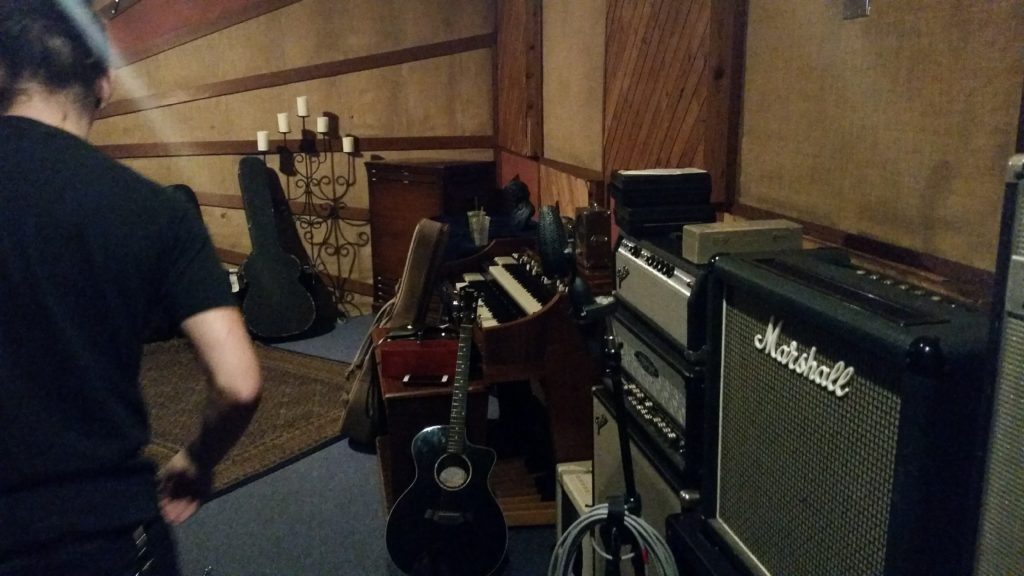
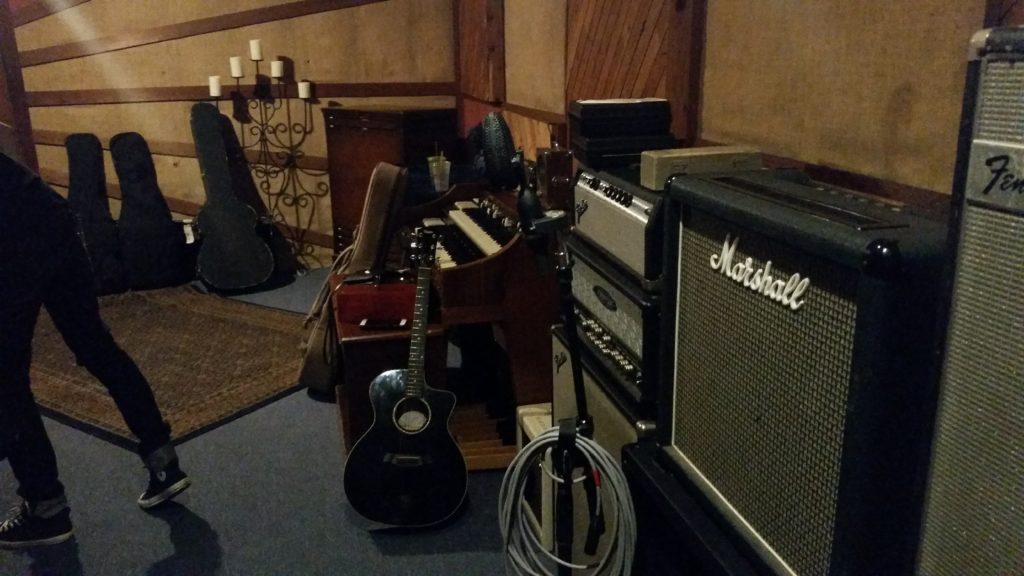
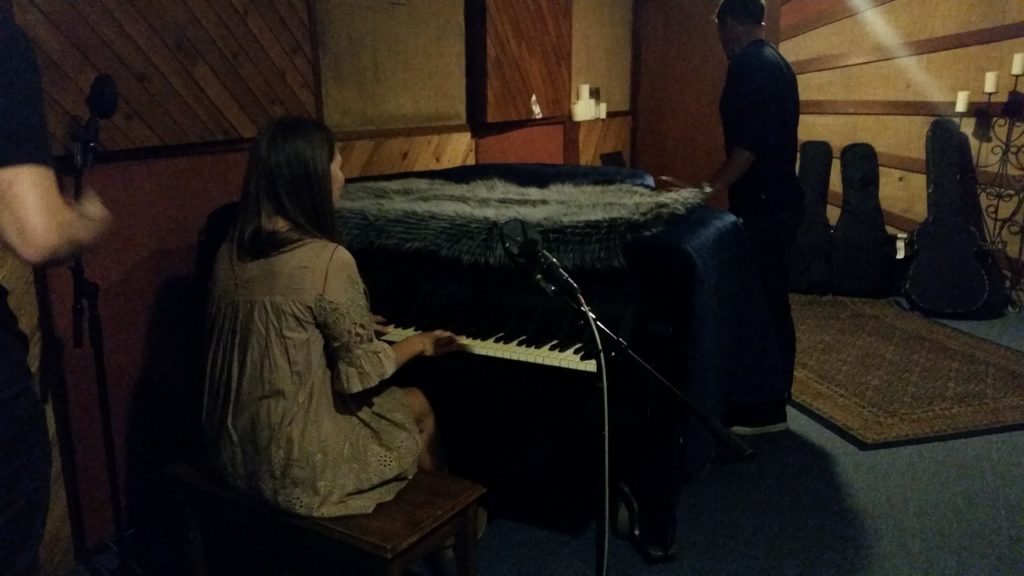
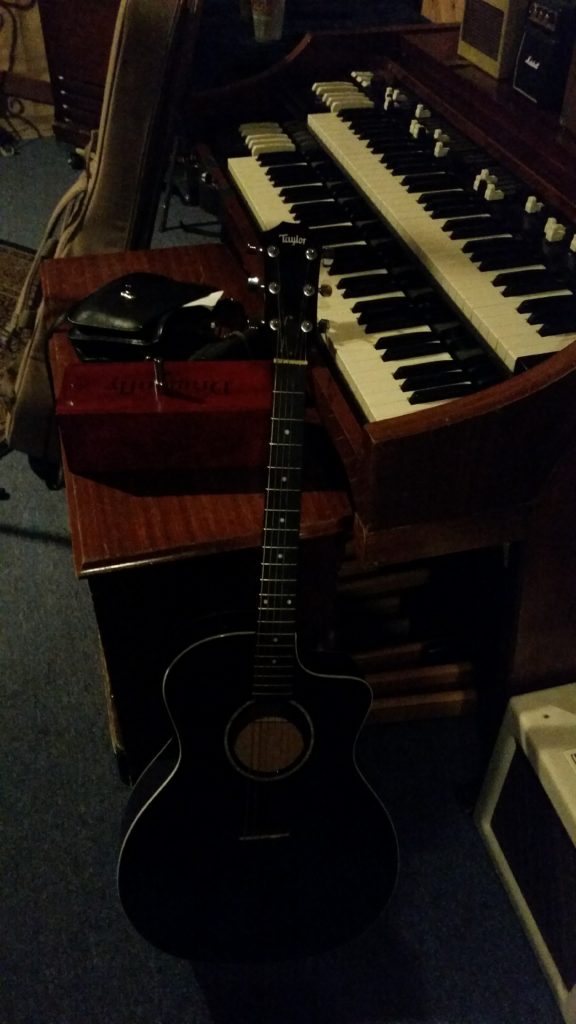
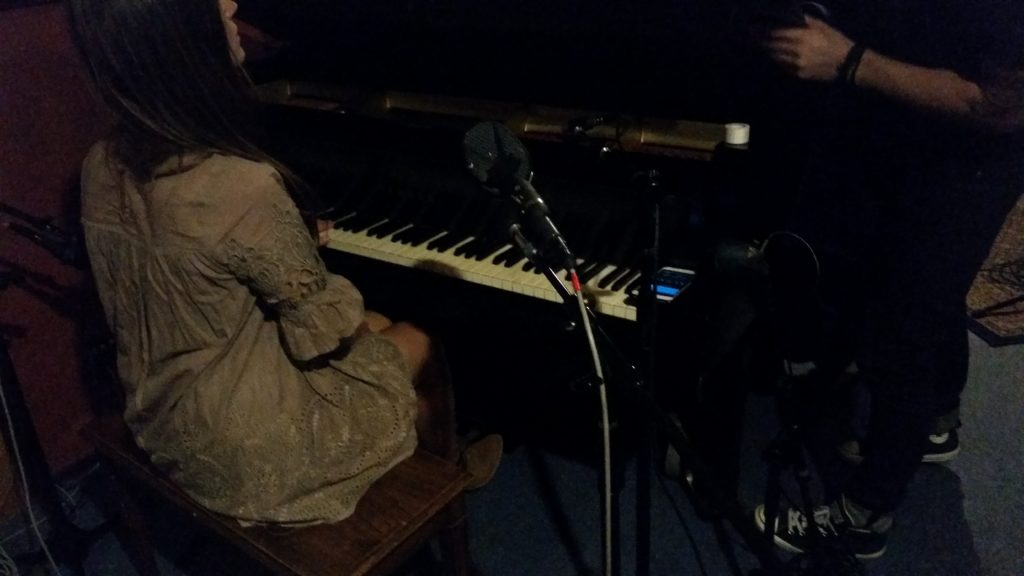
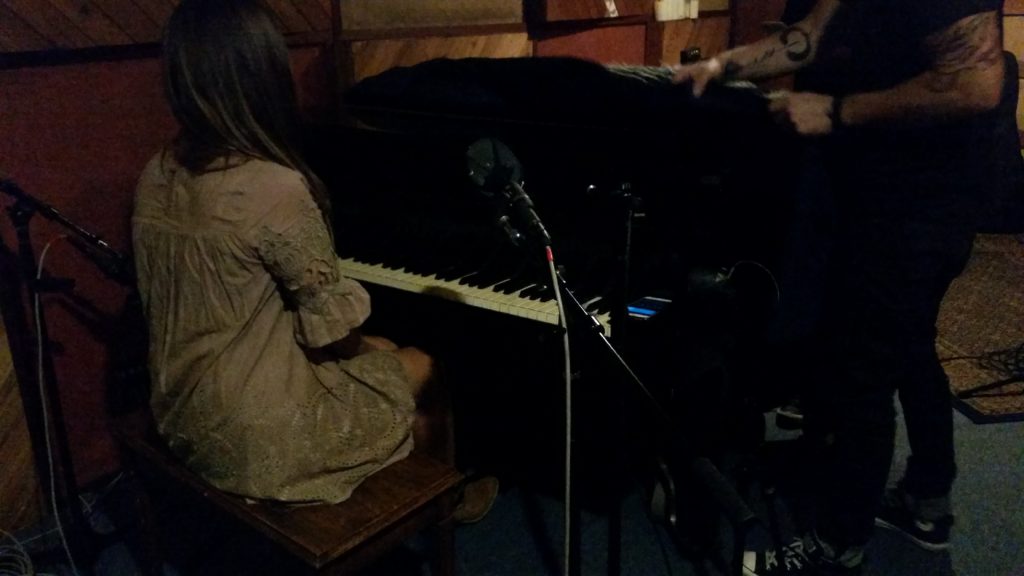
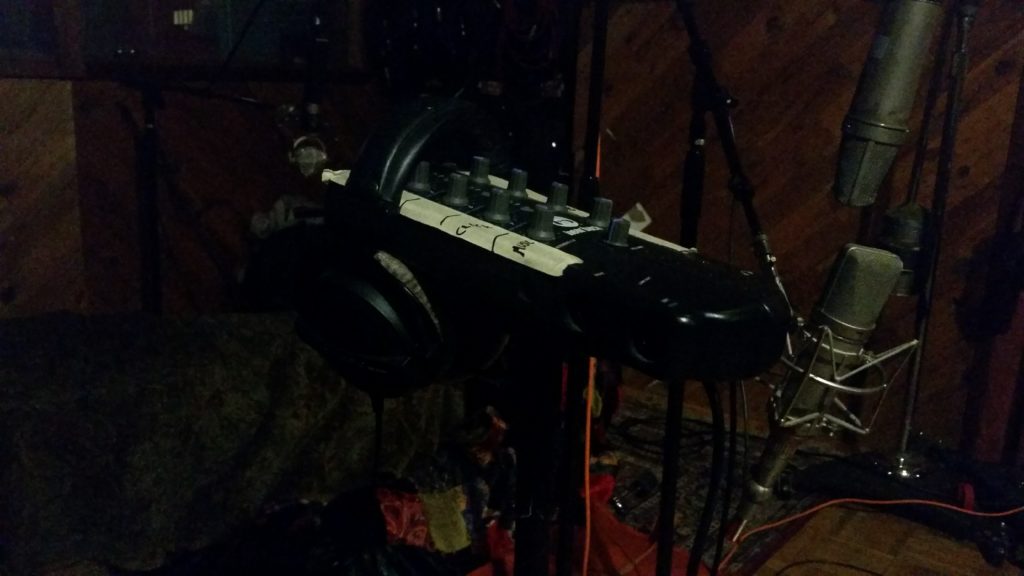
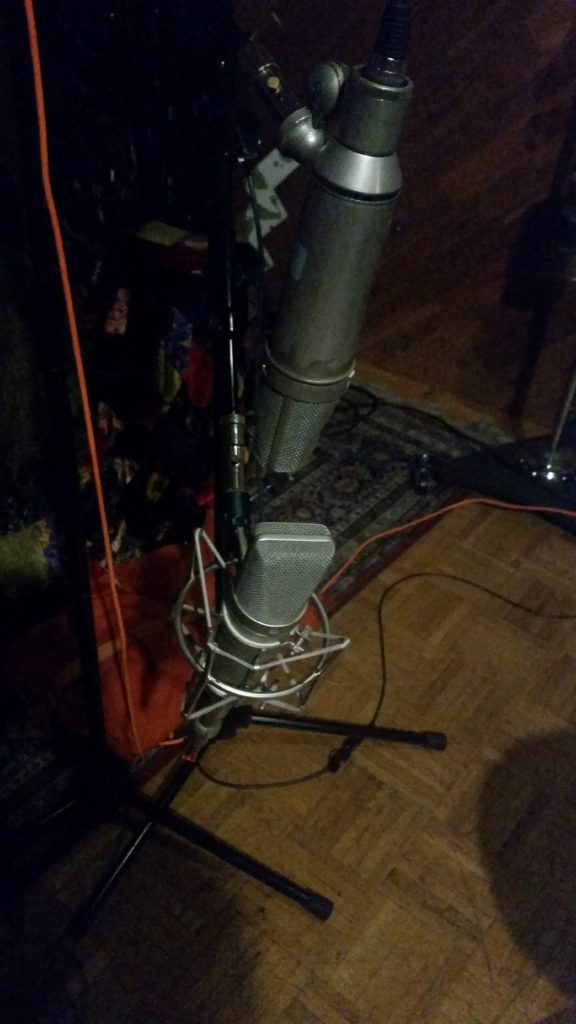
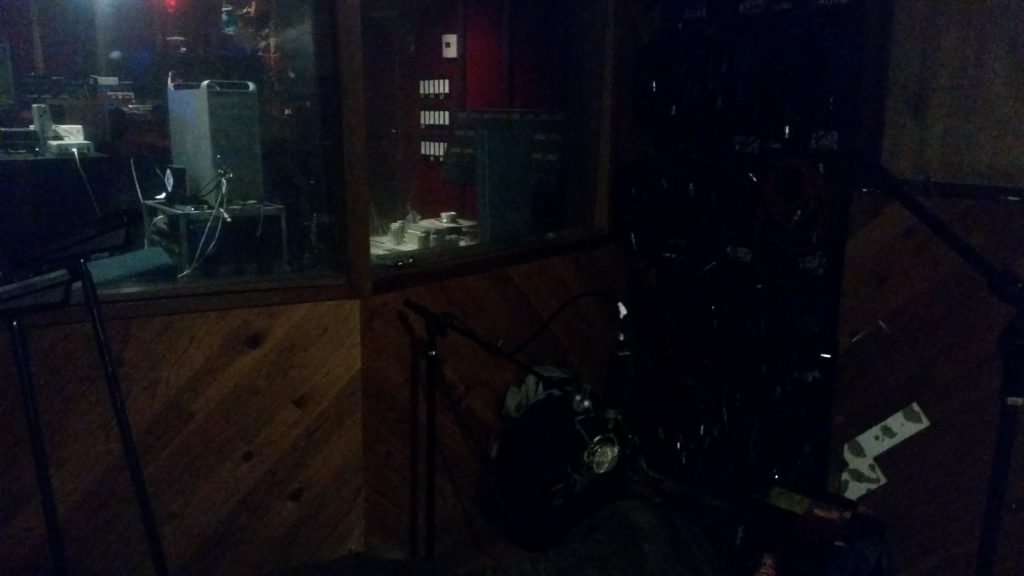
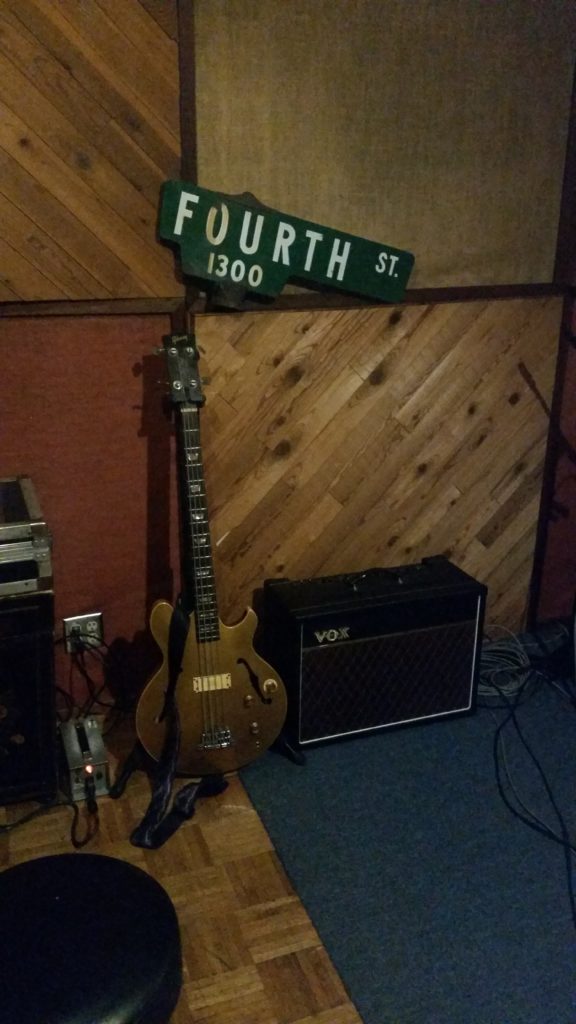
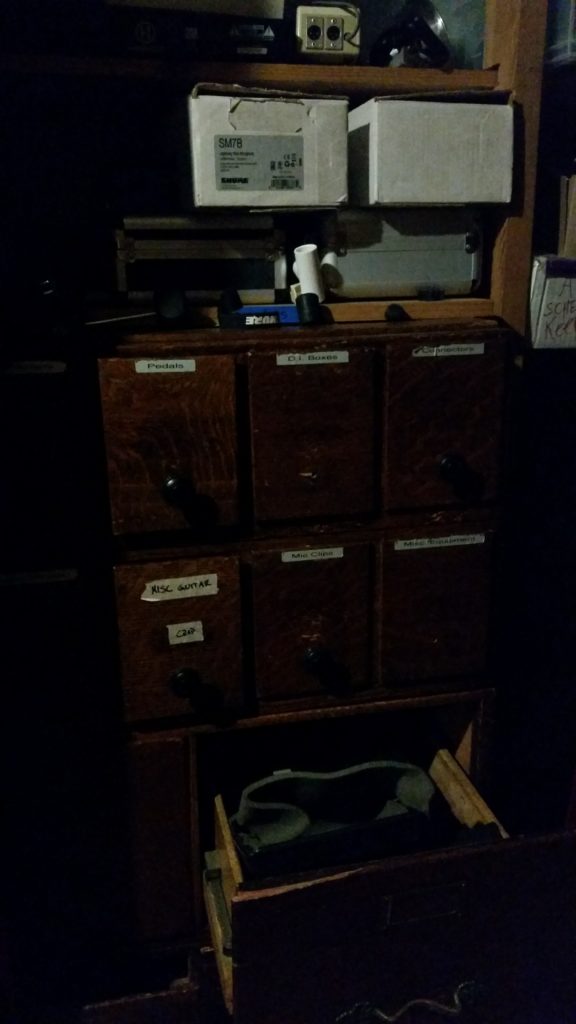
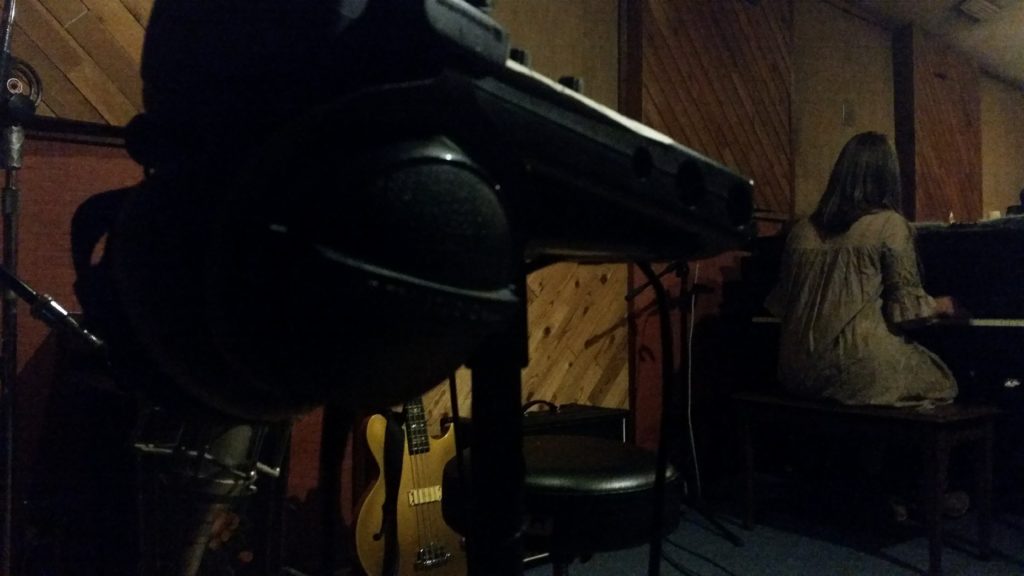
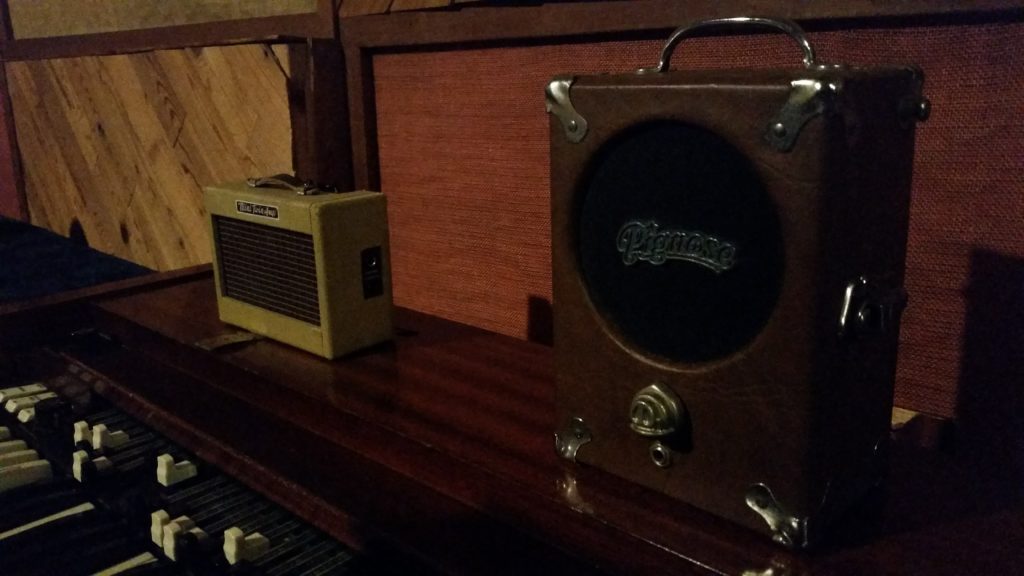
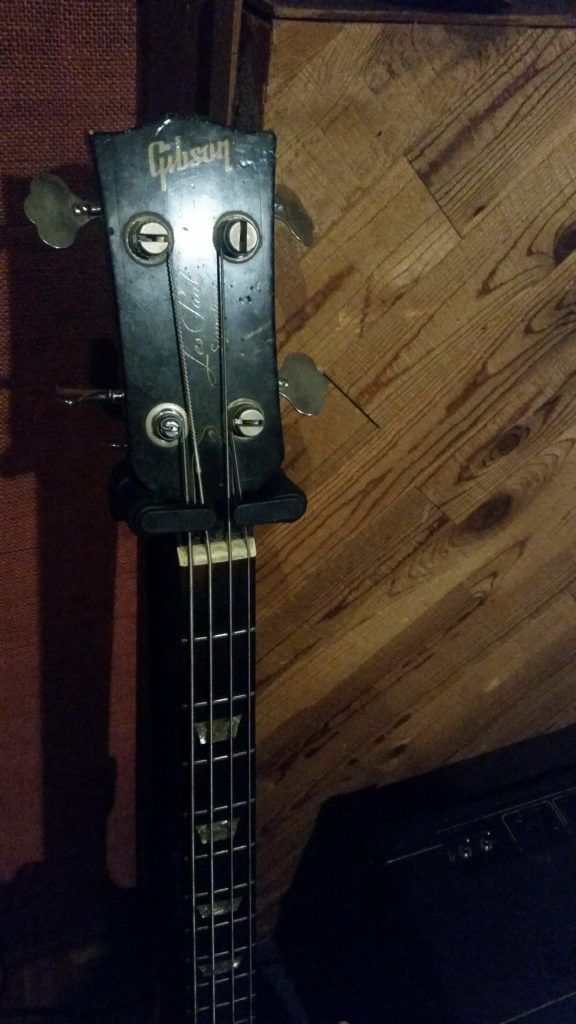
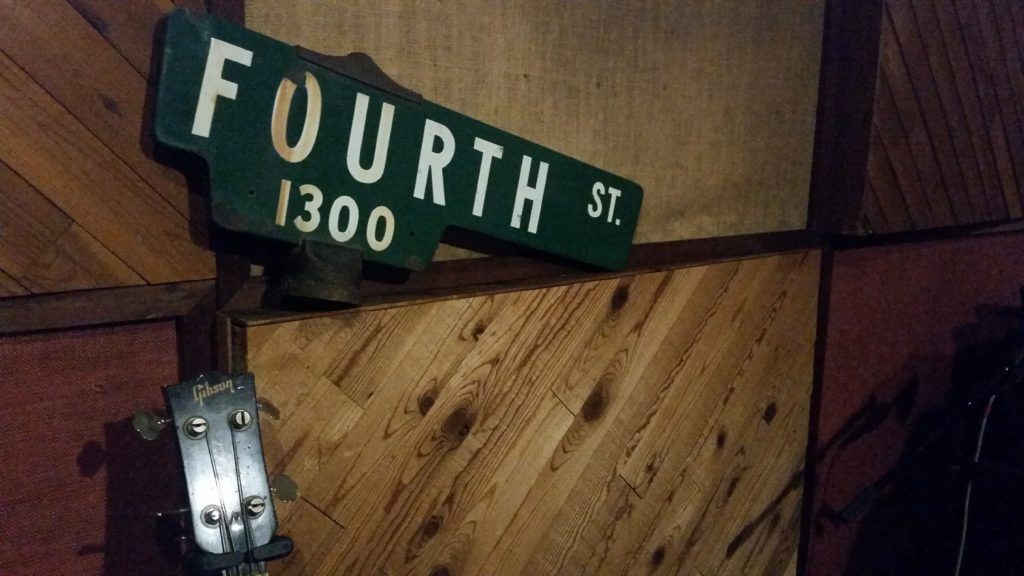
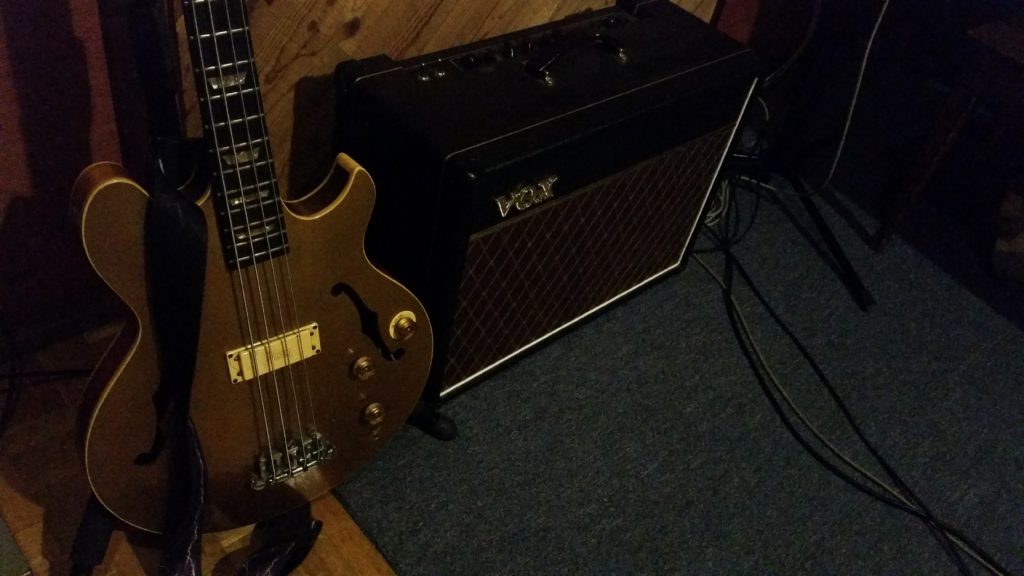
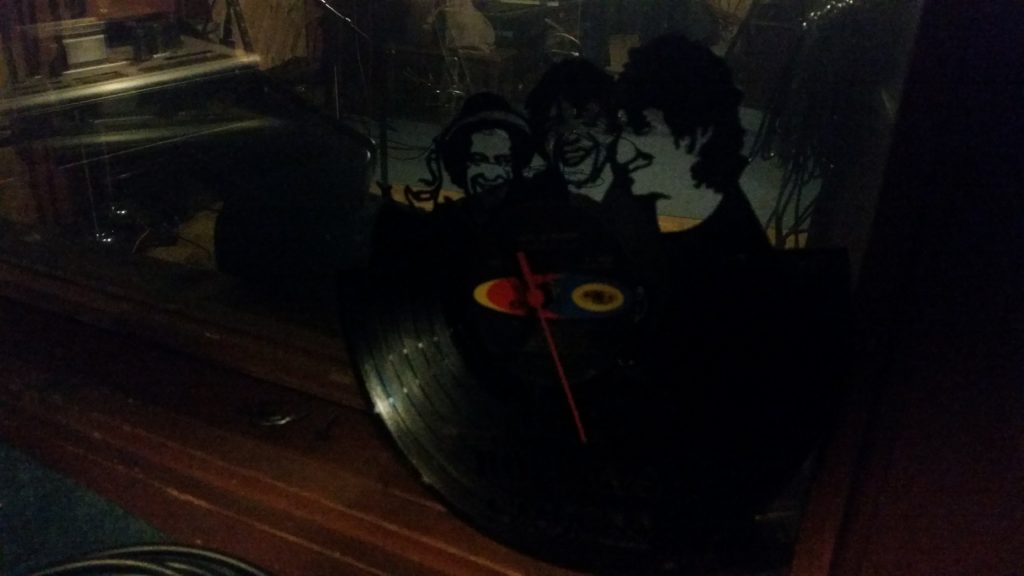
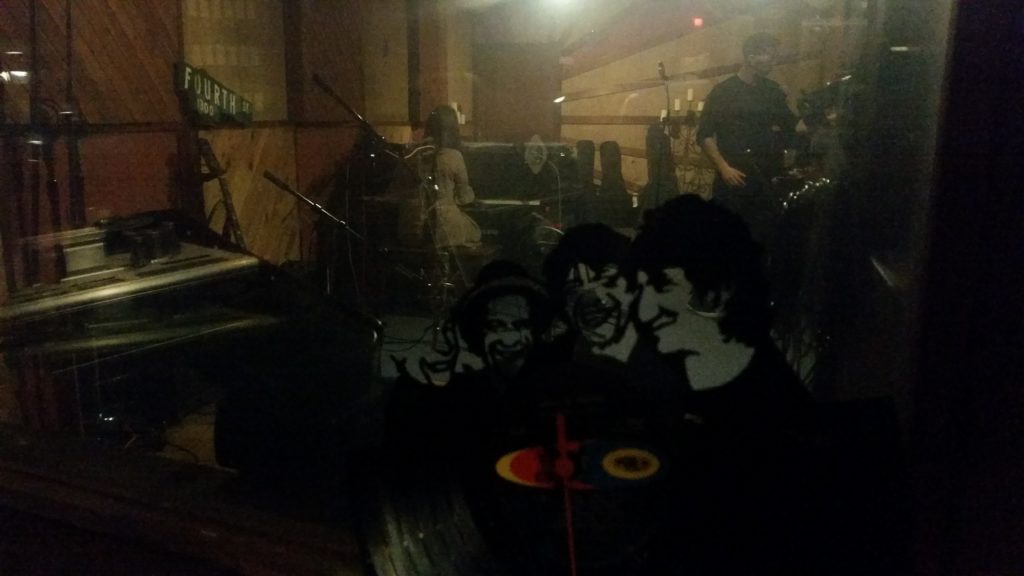
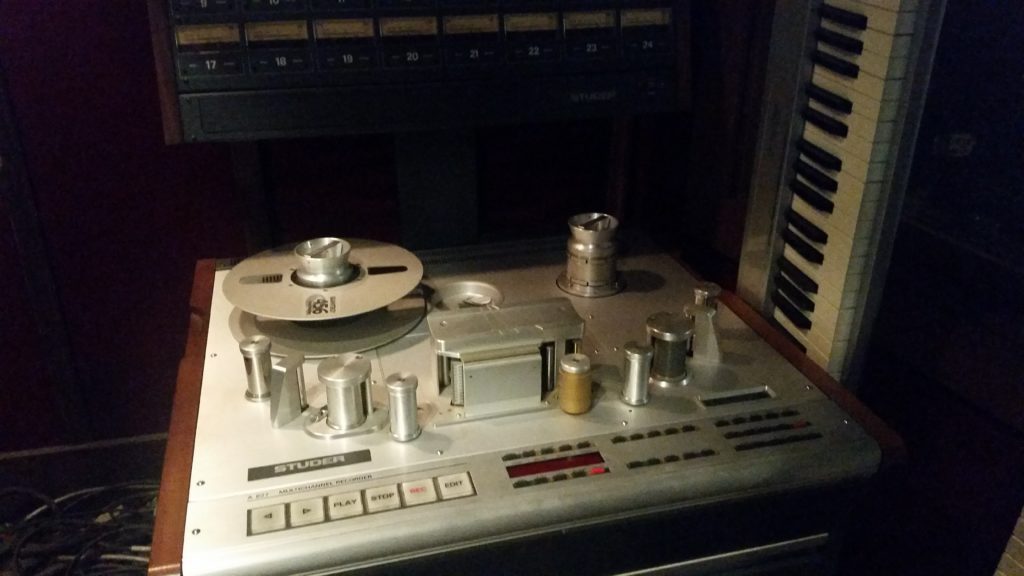
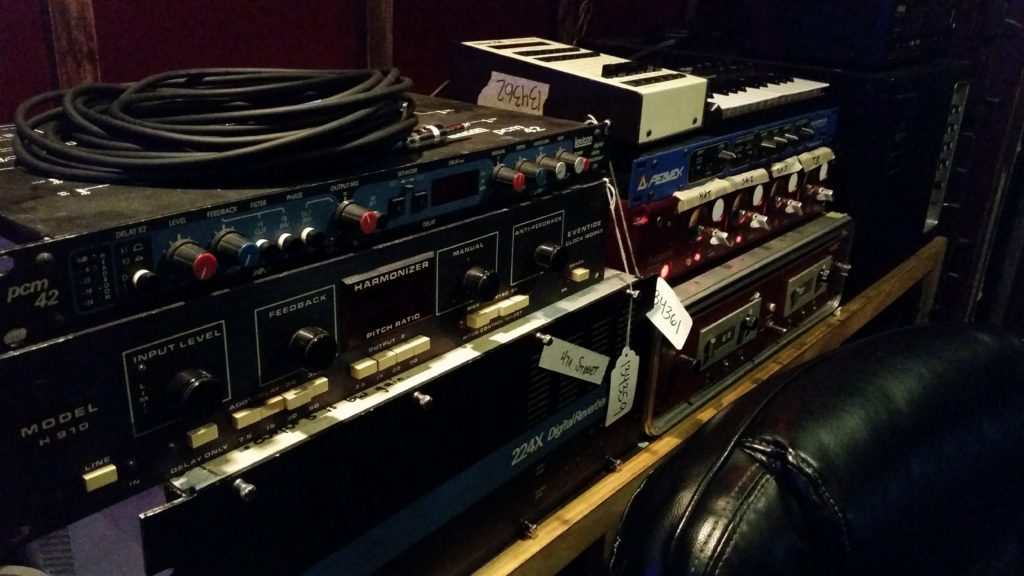
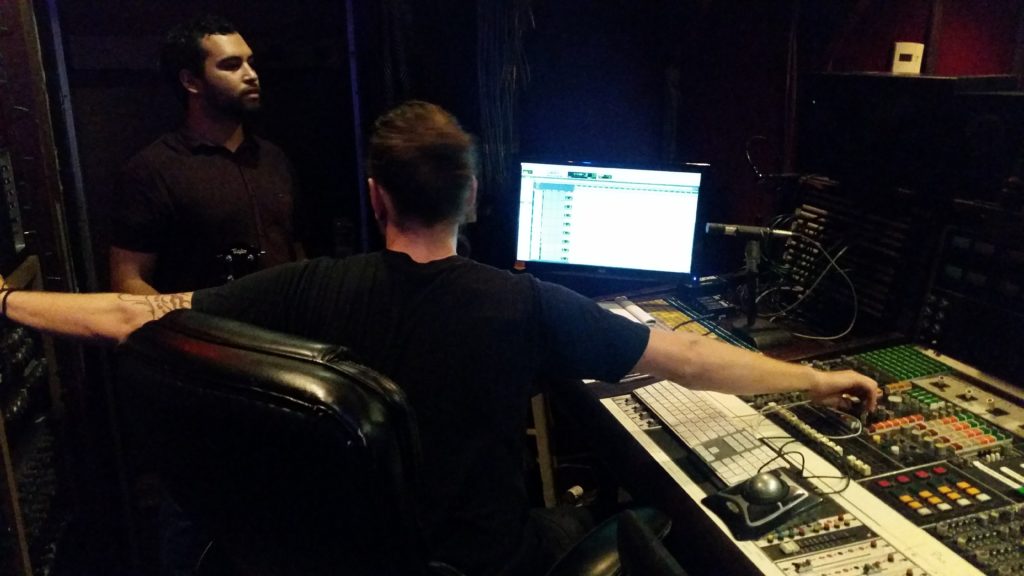
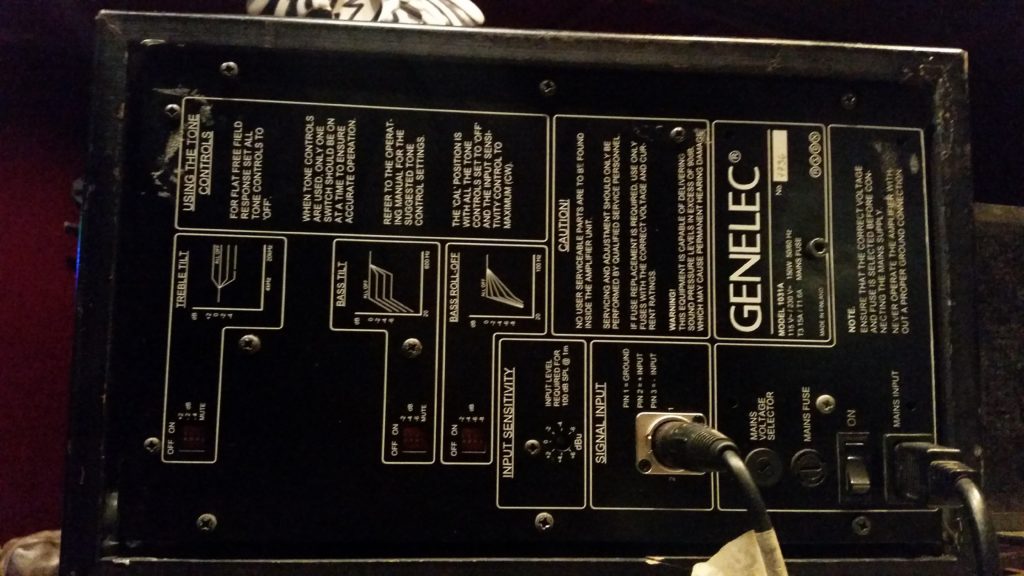
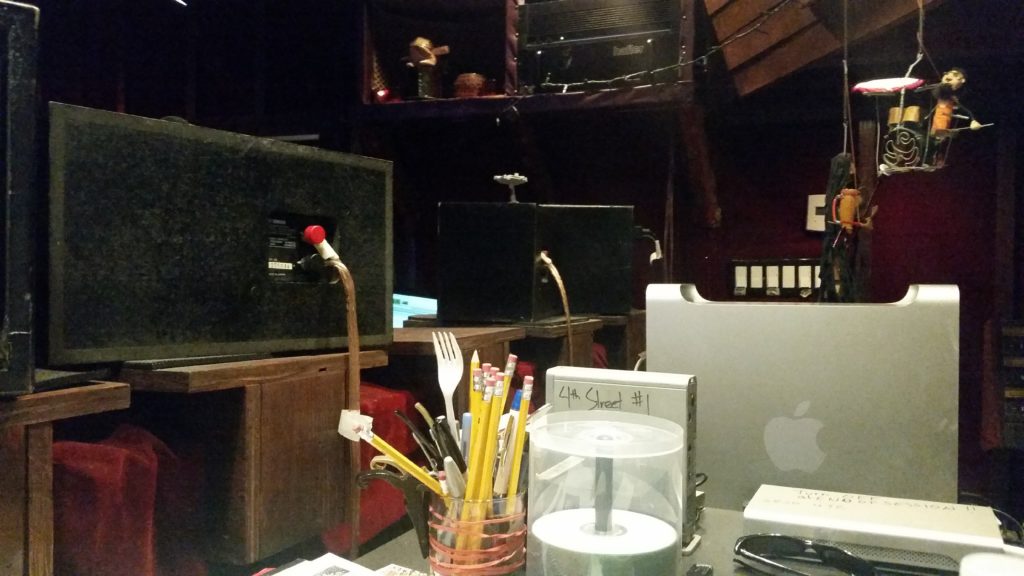
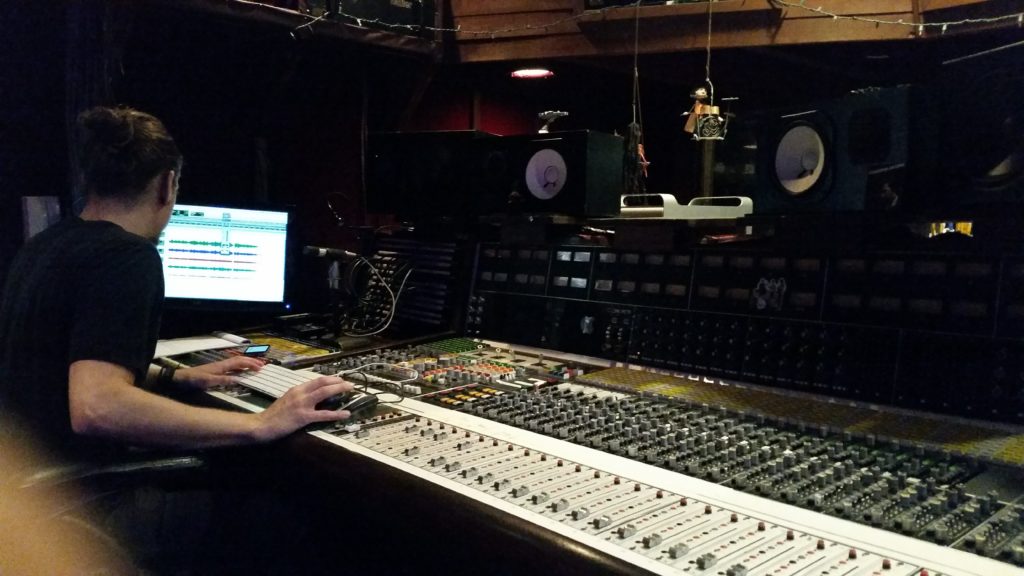
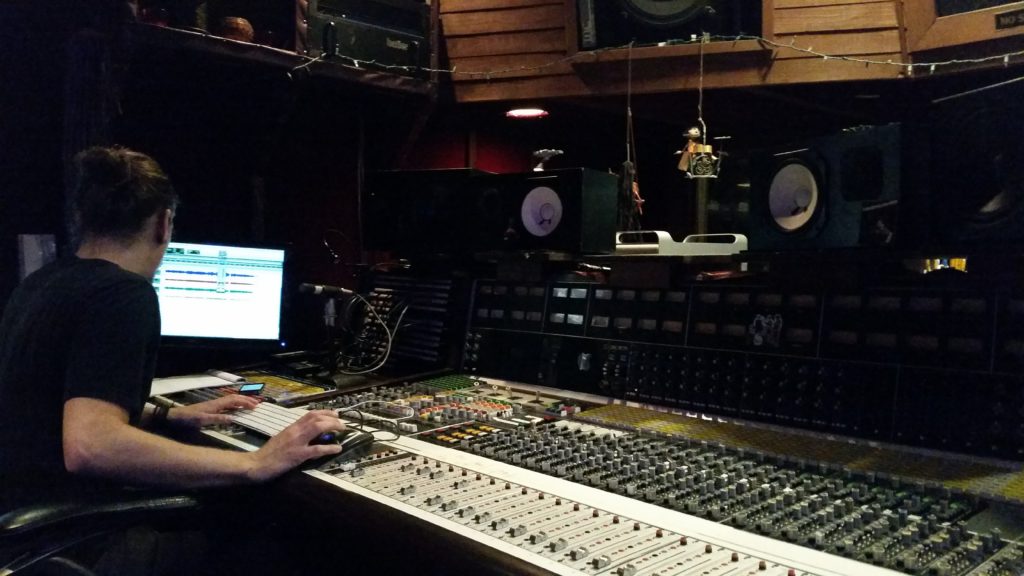
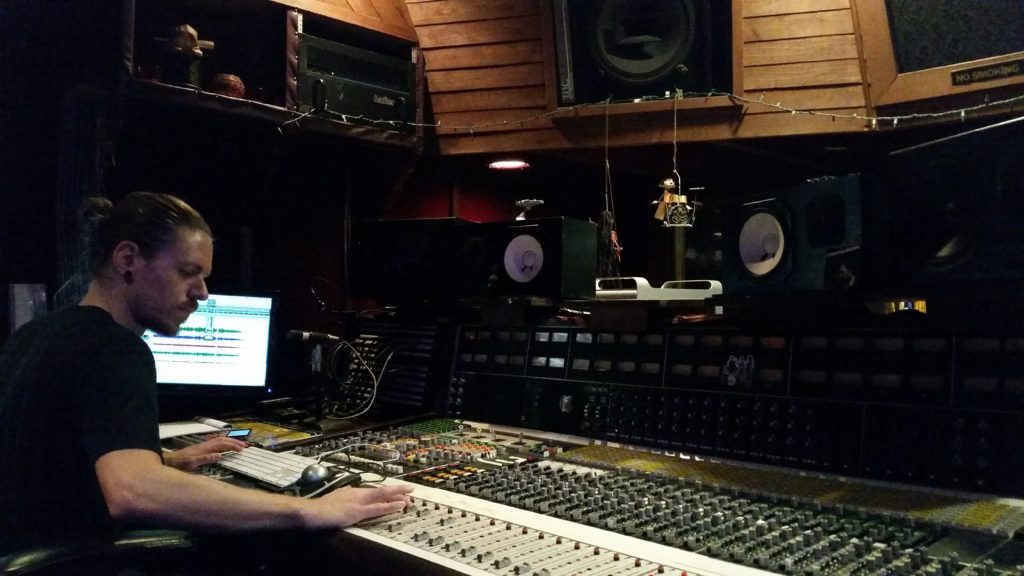
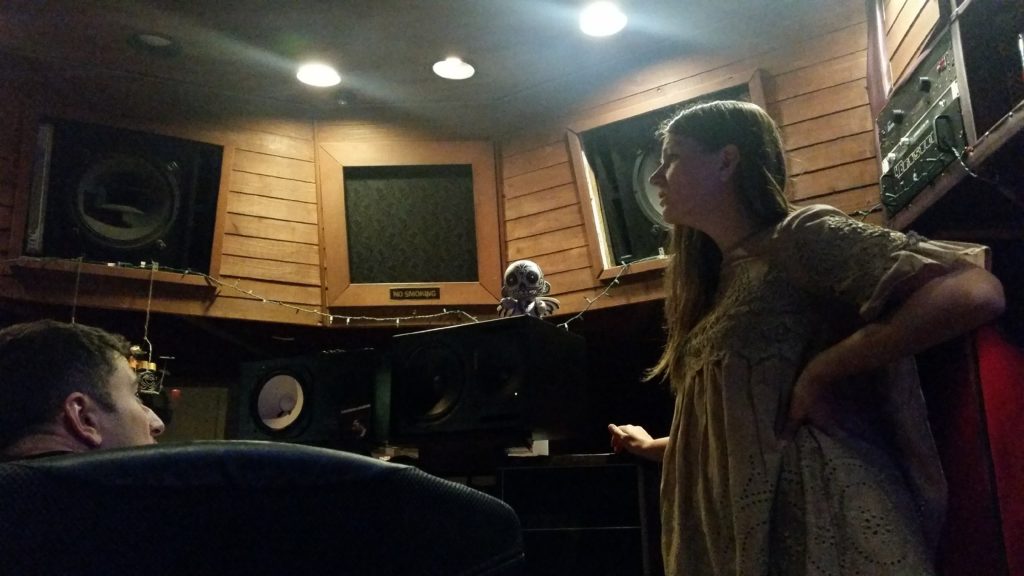
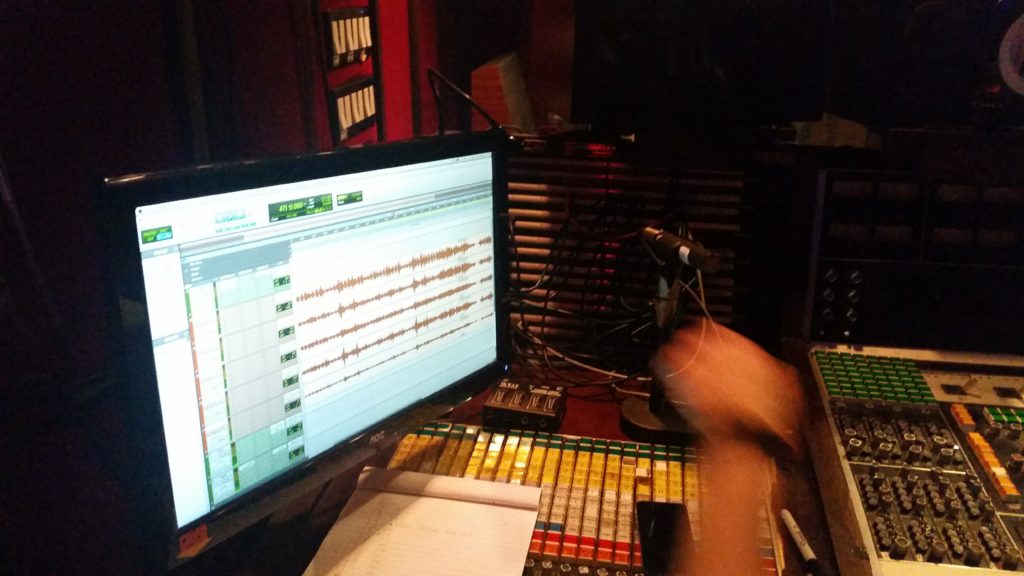


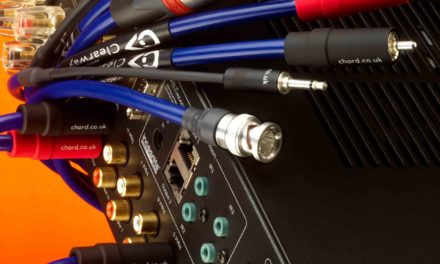

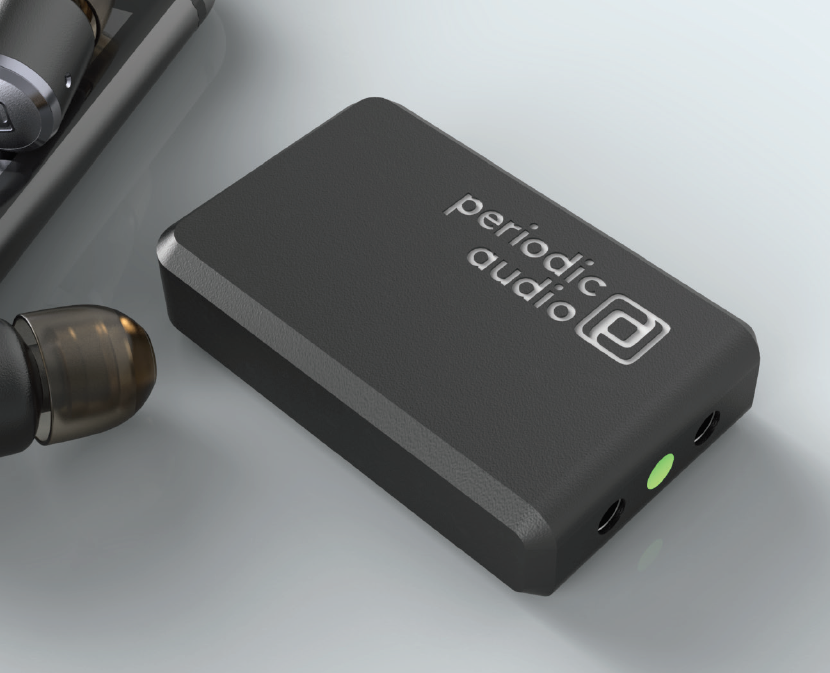


Such a wide breadth of content and authentic personal sharing which offers a much greater appreciation of who you are.
Thank you Jay.
I couldn’t help cracking myself up though that you should do a condom and lube comparison in a future update about the 400 dates in a similar format to your AC Power Cable and Connectors comparison. [Feel free to edit this out if you post]. 🙂
I played bass guitar in a rock band and my biggest issue was the always “confused” stage sound as well as the room modes affecting how hard my picking fingers tried to hit the strings. If I was just doing a sound check, I could hear my voice through the monitors fine with no other instruments playing. I just had to effortlessly finger pick the strings to get the sound I wanted. But when the band started up, it would feel like the entire bottom end dropped out and I’d be plucking the strings really hard as a psycho-acoustic compensation to get the bass to cut through the uncontrolled stage sound. I put together an inexpensive in-ear monitor and that eliminated having to compete in the “loudness war” of the stage sound, the low end came back and I didn’t have to work so hard to pluck the strings anymore. Also singing into the microphone became as easy as singing in the shower without having to scream over the stage sound. The remaining issue is that the $100 Shure SE215 in-ear monitor plugs I tried with only 37dB of outside sound attenuation is not enough and I had to crank up the ear bud volume to an unsafe level. A $$$ custom fit in-ear monitor with over 100dB attenuation is what is needed.
Going back years ago, I recall a conversation with a guitarist I played with in a high school-era rock band. He played me some recent demos tapes he recorded of his band. When I extended an invitation for him to listen to his recordings on my hi-resolution system, he, similarly to the engineer in your article, echoed that people would be listening to his music on boom boxes and car systems and wouldn’t hear the differences resolved from my system. In other words, “not interested”. For me, I can go back to recordings like Who’s Next or Close To The Edge and marvel and be absorbed in the separation of instruments and feeling immersed in a holographic spiritual experience. I was listening to the song “My Wife” and was contemplating whether there was a decision to place the vocal to the right of the listening position or did the engineer hit the phase button by mistake. Also, the vocal seems to decay just inside the left speaker position. Hearing the spatial qualities of these recordings makes me wonder if the engineer could actually hear what was actually going on and whether it was intentional or to what degree was it an unknown byproduct. When you can hear microphone bumps, like on “This Song Is Over”, it’s like you’re right there with the musicians. To me, this brings the “They are here in your room” sense of intimacy and brings me closer to just experiencing the event rather than analyzing it. Although for me, I still almost always analyze it. I find some people who listen to my system start talking over the music acknowledging that they hear the difference but they don’t seem to want to settle in, be quiet and just experience it. Perhaps like being too restless to sit in meditation. A handful of others state that they never knew a system could present music three dimensionally and listen contently but one session is enough for them. They might get absorbed by the fascination of the center phantom image of the main vocal with the speakers being 13 feet apart. Or that the soundstage can wrap all the way to the right and left outside the speakers.
I once applied some hi-fi principles to a homemade bass guitar cabinet. I never liked how the directionality of the 15″ woofer accentuated the bass to the sides of the cabinet and how that coupled with the room to create bass overhang.
I built a di-pole cabinet with a 15″ extended range driver on the front and another on the back panel facing the rear within a ~6 cu/ft sealed cabinet. I tried ported but found the bass bump in the room concealed the timbre of the instrument. I can actually hear the timbre of the Rickenbacker bass from most of the room positions which was my intent. The band guys make fun of me though for the unconventional lengths I take.
Very appreciative of your sharing your passion and I find much congruency with your experiences!
I have a friend that, several years ago played me a recording of his band. I offered for him to listen to it on my hi-resolution system but like the engineer who asked your opinion of the studio playback sound, he also echoed that , ” what difference does it make – anyone listening to it will be playing it on a car stereo or a boom box”. I used to categorize this level of indifference when I worked in technical sales at a Telecommunications equipment manufacturer as lack of passion and intellectual curiosity when I presented compelling marketing information and product ideas to corporate to create new market share.
More recently, I had him and his wife over for a pizza and movie night. Don Juan DeMarco with Johnny Depp and Marlon Brando. Great movie. Afterwards, I played his wife who is not music oriented, “Just a Little Lovin'” by Shelby Lynn. I could see herself totally absorbed in the event – for a little while at least… I played her husband a track from Amused to Death with a Jeff Beck solo.
I think he appreciated it but was more interested in the photo op standing next to my Dunlavy VIs.
Most non-music people who listen to my system start verbalizing over the music what they are picking up and seem incapable or uninterested in immersing in the event, perhaps like not being able to settle in to meditation. More technical people who listen to music are somewhat amazed pertaining to the three-dimensionality that they never heard before. The center phantom image of a life-like vocal between two speakers 13′ apart can be quite psycho-acoustically fascinating.
In terms of recording, I am still fascinated by old and very sentimental rock classics like Who’s Next and Close To The Edge.
Listening to the song “My Wife”, I wonder what the sound engineer from the early 70s was actually going for and did he know the vocal was out of phase appearing to the listener’s right or did he accidently hit the phase switch by mistake? You can hear the decay of the vocal ending just within the inside of the left speaker. Being able to hear the mic being bumped in the beginning of “This Song Is Over” conveys a sense that you are in their recording space and to me provides a more spiritual experience, “almost” suspending all analysis to just experiencing the event.
I used to be a perfectionist with my bass guitar rig. I was always figuring ways to have deep low-end with no overhang while still being able to hear the growl and timbre of my Rickenbacker bass. I decided to implement a di-pole topology to cancel out the non-directional bass at the sides of the cabinet by deploying a 15″ wide-range driver on the front and one directly behind it facing the rear wired for a push-pull configuration. The cabinet volume was about 6 cu/ft which in its final configuration was sealed. I found the original port bass hump served to cover up the timbre and the smoother rolloff of the sealed allowed the timber and crunch to be more audible in different locations of a room. The guys in the band were always making fun of me for bringing a new rig concoction every time they’d see me.
Hey Rich. haha, that would be hilarious. I was thinking about creating a Youtube channel of all my interesting dates and have a friend animate it for me. Backburner for now. But man…when you’re willing to put in the work…you’ll meet some VERY interesting people. Had one lady who insisted on grabbing my ass pre and post-dinner (two-handed) on the first date. I happily obliged…but didn’t think she literally meant at the restaurant in front of dozens of guests lol.
Your experience with the “common folks” mirrors mine exactly. The lack of intellectual curiosity and passion is exactly that. After meeting so many different personalities in this lifetime, everyone has their own set of rabbit holes they want to jump into. I even had people turn off their cellphones and use the restroom prior to demoing my home theater…although impressed…they never wanted to come back. Taking those extra steps for the optimal experience is in our blood – and they’ll make fun of us for it lol. I think most audiophiles come to realize, it doesn’t matter what others think, we’re just trying to get our system to the point where we’re looking forward to listening to it every chance we get. Nothing else matters.
I love your comment about analyzing the music because the same questions enter my mind. “Was that intended or was that a mistake?” I’m pretty sure most producers and engineers won’t fully grasp the level of ambiance and detail that was recorded. But sometimes it’s in those nuances that elevate the experience to spiritual levels. I’ll have to listen to the Dunlavy VI someday!
My second reply appeared to get lost from a glitch after hitting “POST COMMENT” so I typed it over from memory and resubmitted…
Jay,
I take it you’re an audiobacon YouTube channel? That is where the money is as a reviewer. I will gladly be a subscriber. Your review have been spot on in the past and are aboveboard honest.
I had read somewhere else the 400 date dating story but had no idea it was you. Your wife must support your passion. I am married to a first generation Chinese immigrant. She is the hardest working person I know. Not afraid to try any business venture.
I look forward to hearing about your high end room. It’s equipment picks and reviews. I too enjoy affordable equipment and love trying the simple things that work. Plus springing forward to upper echelon equipment. Having the opinion of an engineer audiophile not hung up with the yet explained physics is a great asset to those of us that desire top notch sound.
Perhaps a Youtube channel on dating horror stories might be more lucrative lol. Your wife sounds amazing. I admire people with a strong work ethic (there aren’t many out there). My wife’s sick of all the cables and gear cluttering the space…but she could appreciate the hobby. Thank you for your words of encouragement! I still have quite a bit of work to do but it’s moving along. I’m excited for what’s to come.
I’ll revert to the slang du jour. You’re a f***king baller. Thanks for one of the more honest and open articles I’ve seen in some time. I always loved your reviews. I’d do the standard OCD thing of cycling through every site/blog I found relevant and yours was always one of them. I wondered what happened. Thanks for sharing. You’re obviously a survivor. Keep it up. I’m going through a tough time myself and appreciate your resiliency. Got my spirits up today.
Much appreciated, Joe. I’m almost done with the studio. I was busy grabbing some “tendies” from WallStreetBets. 🙂 I’ll be up and running soon.
Nice post, Jay. Admittedly, you’ve gotten me way more into analyzing cables in my system…so many cables. I wish this didn’t make such a difference sometimes.
Oh and former KRP 500m owner here 🙂
KRP 500M…now that’s baller 🙂
Hi Jay, really really enjoyed reading the insights to your life. And have really enjoyed reading your reviews here on your site. And because we are on the same page, I really do understand when you say “it doesn’t matter what others think, we’re just trying to get our system to the point where we’re looking forward to listening to it every chance we get. Nothing else matters”. I find this a very stimulating and fun rabbit hole to go down. Not sure we can hurt anyone this way as long as we stay within our means and not let it rob us of every minute.
I do admire your work ethic. This is part of the American dream and you are certainly taking tremendous advantage of it. Rock on!
Looking forward to where your journey takes you and walking with you through this adventure of audiophilia.
Ah Warren G…Regulate. 🙂 A classic.